

















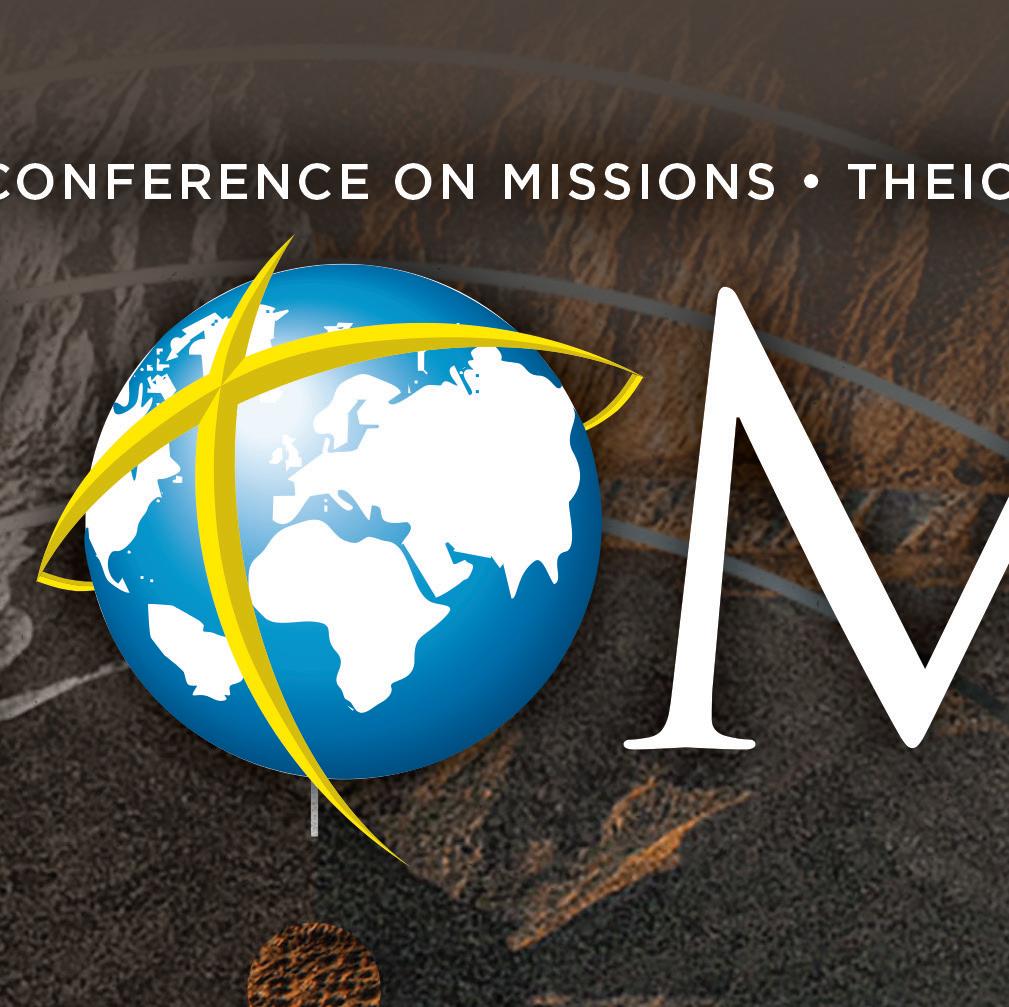














I n the previous three columns, we explored three questions: 1) Is there a leader? 2) Is there a vision? 3) Am I passionate about that vision? This fourth installment discusses how leadership, vision, and passion are transmitted.
When we were first dreaming of going to Macomb, Illinois with The Crossing, I took our pastoral staff up to survey possible locations. We were eating at a Mexican restaurant close by. The lunch crowd was filling up the place with business professionals, students taking a break from campus food, families eating together, and so on. While we waited for our order, I told them to look around and imagine how many of those people were members of our church and just didn’t know it yet. How many marriages and families were going to be saved, how many victories over addictions, and how many students forever changed were in that room? There was something epic and dramatic about seeing it that way. It was like seeing it with God’s eyes. When leaders are passionately preoccupied with their vision, they are always looking for opportunities to communicate it.
Effective communication of vision happens when ownership transfers to those receiving it. There is dialogue in the conversation. The effective communicator tries to help the receiver make the vision his or her own. He will frame the vision in contexts familiar to the receiver. I see this illustrated dramatically in the preaching event. I believe the best sermons people hear are the ones they don’t hear. Confused? Let me explain. We all believe the Holy Spirit is working in the Word of God as it is delivered, but I see something more. I’m preaching and the congregation is listening. Each one is listening with their own set of circumstances, challenges, and emotions. Something trips in the listener’s mind. Maybe it’s a word, a phrase, or a thought that comes from what they are hearing. Suddenly, they are attaching that thought to their own personal experience. They aren’t listening to me anymore. The Holy Spirit has taken over the controls. This is the richest moment because something new is attaching itself to the soul of the listener. The experience runs its course, and the listener finds the on ramp back into the sermon.
Before long, another trigger starts the next rich moment. People have approached me after sermons sharing a point that affected them deeply only to find me staring back at them, realizing I never said what they heard. What’s happening? They are making the sermon theirs. It may not look the same as when you gave it. That’s not really important. What is important is what happened between them and God. That’s intimate, personal, and relational with Jesus.
The same thing is needed when communicating vision. The listener gets caught up in the power and passion of the vision. The most effective ideas communicated are the ones people consider their own. The best leaders have learned to be comfortable with adjustments to means and methods or with entirely new ones. Remember, the vision hasn’t changed; just the way to carry it out. Very few things look like I imagined them at our church. They look a lot better. While I’m willing to die on the hill for the vision, I get excited about how leaders around me adjust the means and methods for making it their own. If the leader has this all figured out beforehand, he fails to capitalize on a great opportunity to develop the leaders around him. Everybody owns the vision through the means and methods they’ve developed to achieve it. Everyone shares in the success produced. Everyone realizes that only Jesus works through the body of Christ like this.
A passionate vision is expressed in core values, and they are critical to the alignment a leader needs out of his people. The best resource I’ve found for this is Craig Groeschel’s leadership podcast on core values. There was a time when I realized that our church’s mission had been clearly communicated and transferred but that our core values, the means through which we accomplish that mission, had not. My mistake was thinking that it was enough that I knew it; but I couldn’t have been more wrong. We fashioned those core values into short, life-giving statements and communicated them over and over. It was amazing
how they were received and how it aligned our church. Now, when we discuss some new idea or plan, our first question is whether or not it follows our core values. Core values are what we do; not what we wish we did. I would love it if I could add some values not presently there, but there must be honesty in the reality of what we are actually walking out. It doesn’t become a core value until after you do it and do it well.
When a vision is communicated effectively, people are drawn to the vision and not just the leader. In the long term, this gets far more traction for the church and for the kingdom of God. I know this sounds like a contradiction because a passionate vision is personal; but a great leader gets people to focus on the vision itself. Churches that center on a vision are going to be much healthier than those that center on the personality of a leader. Letting the focus rest on the leader is ultimately and invariably destructive. Leaders are humans and humans can’t help but make mistakes, be inconsistent, and disappoint. Concentrating on the vision puts the focus on God where it belongs. He alone is consistently faithful and true.
I want to mention one last thing about leaders in churches. The normal look of leadership in a local church is a group of staff and a group of lay leaders. There will probably be some form of regular staff meetings and regular lay leadership meetings (board meetings). Both of these circles of leadership are critically important. The “true leader” leads through these groups. He has the responsibility of keeping these two circles connected by building great relationships inside of both. He not only facilitates each one in the circles to reach a higher potential, but also promotes mutual respect between groups as they own each achievement together.
@_jerryharris /jerrydharris





















Filter
“B
e
still.”

I heard the words frequently as a child—in the middle of a church service, while interrupting an adult conversation, or when my brother and I held late night whispering sessions from our twin beds in the room we shared.
For the most part the words were spoken gently, although there were a few occasions when my conduct merited a sterner warning.
I don’t hear the words often today, although I’ve been thinking about them—not in the disciplinary sense, but in terms of what it means to “be still” as a child of God.
Busy schedules and daily pressures seem to be the norm today—to the point that many of us have learned to equate busyness with productivity. The more we hurry and extend ourselves, the more success we should enjoy.
Although there is truth to the “hard work brings success” formula, it doesn’t give us permission to make busyness
a life priority. And it certainly doesn’t define our calling as Christians.
It’s a point easily missed. Sometimes we get so absorbed in the hectic pace of home life, business, and even our service to the church that we have little margin left to cultivate a personal and meaningful relationship with God. We get caught up in responsibilities, activities, and programs, and as a result, the one who deserves our time first and foremost winds up near the bottom of the list.
The psalmist offered a remedy for the kind of busyness that keeps us from drawing near to our heavenly Father. He wrote, “Be still, and know that I am God; I will be exalted among the nations, I will be exalted in the earth. The LORD Almighty is with us; the God of Jacob is our fortress” (Psalm 46:10, 11, New International Version).
The English translation “be still” comes from the Hebrew word raphah, which means to slacken, abate, or cease. Perhaps we could say, “Slow down; take a deep breath; quit
hurrying.” The psalmist seems to be urging us to relax our pace, cease our resistance, and learn to rest in God.
Nothing should be more important to the Christian.
This problem isn’t a new one. In the preface to his classic work, The Knowledge of the Holy, A.W. Tozer wrote, “Modern Christianity is simply not producing the kind of Christian who can appreciate or experience the life in the Spirit. The words, ‘Be still, and know that I am God,’ mean next to nothing to the self-confident, bustling worshiper in this middle period of the twentieth century.”
On another occasion Tozer observed, “We slander God by our eagerness to serve him without knowing him.”
Point taken. So how can we quiet our souls and get to know God?
We can start by cultivating our listening skills. I’m afraid many of us spend most of our time in the presence of God talking—like little children who enter a room chattering and leave the same way. But when we slow down long enough to give God our undivided attention, when we take the necessary time to come silently into his presence, we enter a new world of learning.
Stillness helps us hear God speak through his Word, his people, and his creation. It fosters quiet confidence and unshakeable trust. As God said through the prophet, “In repentance and rest is your salvation, in quietness and trust is your strength” (Isaiah 30:15).
It isn’t easy. I understand that. We want to give God our best. We work hard to glorify him and to extend his kingdom on earth. Those are noble—and God-honoring— goals. But what does “our best” really look like? Is it a matter of becoming the most effective, the most accomplished, or the most successful in one area of our lives? Or is it something else?
Look at it this way. If I devoted all my time to becoming the most effective preacher I can be, or the best leader, but in that pursuit wound up ignoring my family, shortchanging my friends, and neglecting my spiritual growth and personal walk with God, have I really given him my best?
In the eyes of God, our best isn’t relegated to an isolated achievement, no matter how great the achievement may be. Giving God our best requires a devotion and commitment that impacts our whole selves, our entire lives.
Sometimes, our pursuit of excellence—of doing our very best—can quietly become the enemy of rest. In our desire to succeed, to do good, and to honor God with our efforts, we can become so driven that we forget one essential truth: God didn’t just create us to work—he also created us to rest.
Excellence honors God, and we should pursue it in all our endeavors for him. But rest honors the Lord as well. And rest—along with the accompanying stillness it provides—can become one of the greatest positive change agents in the believer’s life.
Perhaps it’s time to reorder our lives according to the Lord’s own words: “Be still, and know that I am God.”


@shawn.a.mcmullen
/shawn.a.mcmullen




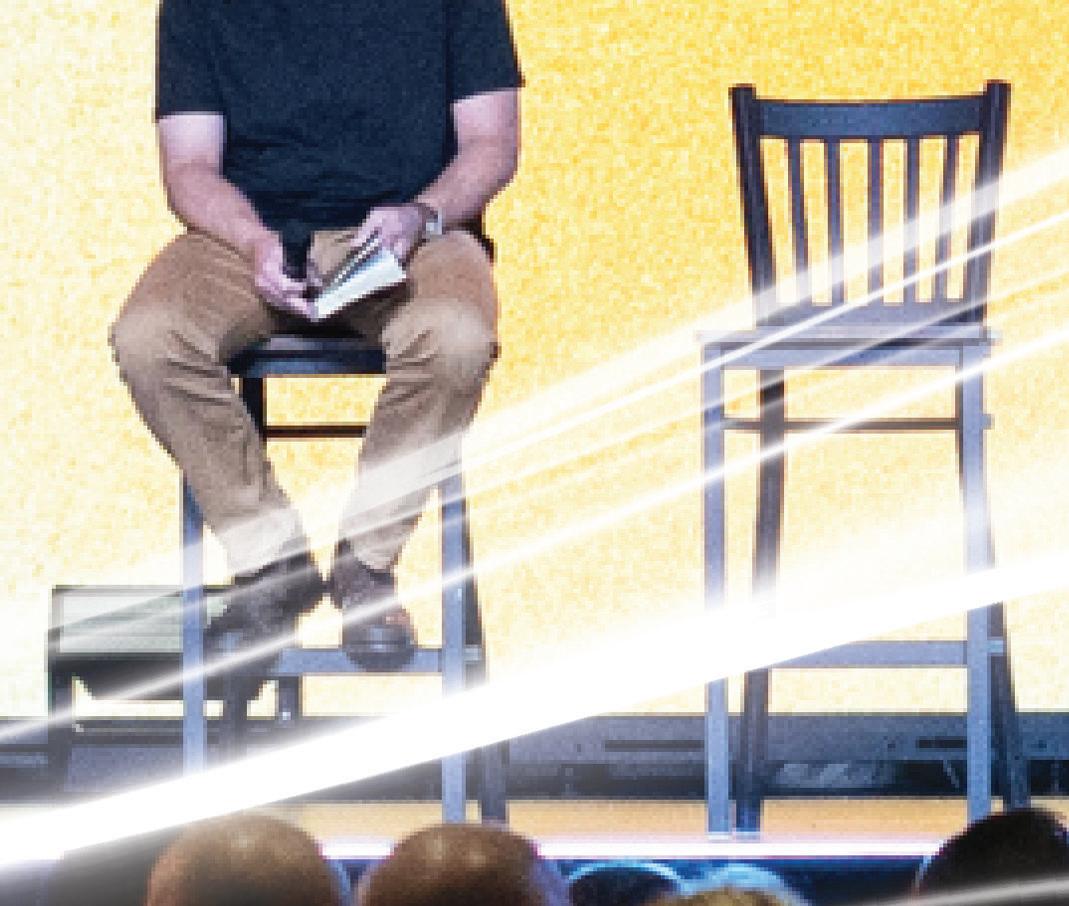






By Kyle Idleman
Fly a kite on a completely windless day. You’ll run back and forth, sweating and frustrated, dragging lifeless fabric behind you. Eventually you’ll come to the inescapable conclusion: We need wind. That’s where many churches find themselves today—exhausted from activity, implementing the latest strategies, yet sensing something essential is missing. That something is the wind of the Holy Spirit.

The American church has never been more resourced. We’ve built bigger buildings, increased budgets, and embraced powerful communication tools. Yet too often engagement is shrinking, influence is waning, and spiritual impact is thinning. The disconnect should prompt some hard questions.
In our corporate culture it’s easy to assume the challenge is strategic, but what if it’s spiritual?
To be clear, I’m not saying those things are mutually exclusive, but what if we’ve become impressively efficient at church operation while increasingly deficient in dependence on the Spirit? Is it possible we’ve pursued a mastery of ministry mechanics but missed the miraculous. The early church didn’t grow through savvy systems, but supernatural strength. Their secret wasn’t better planning—it was deeper prayer and desperate reliance.
Church leaders today face immense pressure to produce measurable results. This pressure naturally drives us toward what we can control—better production, clearer communication, stronger leadership systems. These are good things, but they can quietly become cheap substitutes for what we cannot control but most desperately need—the supernatural presence and power of the Holy Spirit.
In Acts, we see a church that had none of today’s ministry advantages—no buildings, budgets, or broadcast platforms. What they had was the manifest power of God.
They grew because they caught the wind.
Today, many pastors feel depleted. We’ve tried everything—fresh programs, compelling vision, improved leadership—and yet the burden remains. Into our exhaustion, Jesus whispers the same invitation: “Come to me, all who labor and are heavy laden, and I will give you rest.”
This rest isn’t passive but receptive. It’s a posture that trades self-reliance for Spirit-dependance. It’s the difference between building something for God and allowing God to build something through us.
The cultural challenges facing today’s church are significant.
In this post-pandemic world, attendance patterns have shifted, volunteering has declined, and spiritual rhythms have eroded. Strategies that once worked before often fall flat—not because they they’re poorly executed, but perhaps because they lack the spiritual vitality only the Holy Spirit can provide.
Throughout Scripture, moments of disruption often precede movements of renewal. The early church was born
in the wake of the ultimate disruption—the crucifixion of Jesus—followed by his unexpected departure. Into that confusion came Pentecost, with its wind and fire.
We’re not just facing cultural change; we’re navigating a digital deluge. Our congregations have instant access to the world’s best preachers, worship teams, and Bible teachers online. Yet in the midst of all this content, let’s recognize that real spiritual growth is not primarily informational; it’s relational and supernatural. The Holy Spirit doesn’t just inform, he transforms. He doesn’t merely educate, he empowers. In a time when churches can primarily become content creators and consumers, we must reawaken to the irreplaceable work of the Spirit.
Add to that rising polarization, fragmented attention spans, and growing skepticism of institutional religion— and we’re facing headwinds no program can overcome. These are not problems we can solve with better branding. They require a fresh move of God.
Human effort can never produce what only the Holy Spirit can.
Here’s the beautiful paradox: greater spiritual impact begins by admitting our lack of power.
When we confess that our strategies aren’t enough, we create space for the sufficiency of the Spirit.
I’m reminded of Peter and John at the temple gate. They had no money to offer, no worldly leverage, but they had something better: “In the name of Jesus Christ of Nazareth, rise up and walk” (Acts 3:6).
Today’s church may or may not have plenty of silver and gold, but what we need is the kind of bold, Spirit-dependent power that comes only from beyond ourselves.
As we step forward in this pivotal cultural moment, our greatest need isn’t newer models. It’s deeper surrender. We don’t need to try harder; we need to yield more fully to the Spirit’s leadership. We need more than an effective plan. We need his presence.
All of this is exactly what we’ll be focusing on at this year’s Spire Conference hosted at Southeast Christian Church in Louisville, Kentucky on September 23-25. It’s a timely and essential gathering for church leaders.
The wind of the Spirit is still blowing.
Let’s catch it together.
Kentucky.




















e 2:effective elders
By Gary Johnson
I n 1930, brothers George and Ira Gershwin composed a song that was made famous by many performing artists like Judy Garland, Ella Fitgerald, and Ethel Merman. The song, I Got Rhythm, quickly became well-known in the world of jazz. If I can be candid, I can honestly say I’ve got little or no rhythm and it has nothing to do with music.
In Genesis 1, God created more than earth and the expansive universe. He created measured time, and a vital element of measured time is the rhythm of rest. By the end of the sixth day of creation, God completed the entire universe in its vast array and then he rested. And so must we.
When a nation is born, one of the first tasks to pursue is the writing of laws. When the United States came to be, our founders wrote the Constitution, the Bill of Rights, and other governing documents to serve as a foundation for our country. Similarly, when the Israelites were rescued from slavery in Egypt and God birthed them as a nation, he gave them laws on which to build their country, such as the ten commandments. The fourth commandment speaks to the rhythm of rest.
Remember the Sabbath day by keeping it holy. Six days you shall labor and do all your work, but the seventh day is a sabbath to the Lord your God. On it you shall not do any work, neither you, nor your son or daughter, nor your male or female servant, nor your animals, nor any foreigner residing in your towns. For in six days the Lord made the heavens and the earth, the sea, and all that is in them, but he rested on the seventh day. Therefore, the Lord blessed the Sabbath day and made it holy (E xodus 20:8-11, New International Version).
This is the longest of the ten commandments. God said more about resting one day a week than He did about lying, stealing, or murder. Also, this is the only commandment of 10 that is a spiritual discipline, that when practiced, moves us into a deeper, healthier relationship with God.
The word Sabbath in Hebrew is the word Shabbat and it means “to stop, to cease.” God commanded us to stop doing what we are doing the other six days in a week, and to literally rest on a seventh day. The sixth commandment is, “Don’t murder anyone,” but if we keep working seven days a week, week after week, we will kill ourselves.
The Sabbath, or Lord’s Day, provides us with some R&R. It’s a day to reflect and to rest. We worship the Lord on his day, reflecting on who he is and what he has done. We reflect on his death and resurrection as we participate in the Lord’s Supper. Following our time of reflection (i.e., worship), we have a day to enjoy some rest! God set this example for us during the first week of earth’s existence.
God saw all that he had made, and it was very good. And there was evening, and there was morning–the sixth day. Thus, the heavens and the earth were completed in their vast array. By the seventh day God had finished the work he had been doing; so, on the seventh day he rested from all of his work. Then God blessed the seventh day and made it holy, because on it he rested from all the work of creating that he had done (Genesis 1:31-2:2)
“
Does this mean that God needed a nap from being exhausted? Not at all. We associate rest with being exhausted, so we assume that God became tired and needed rest. Isaiah 40:28 declares, “He will not grow tired or weary.” Psalm 121:4 states, “[God] will neither slumber nor sleep.” God did not rest because he needed sleep. Instead, it means that he reflected on his work. God looked at and enjoyed his completed work. In creation, God created a rhythm of rest.
Reflecting God’s Image
The Word says, “This is love for God: to obey his commands and his commands are not burdensome” (1 John 5:3). So, God commands me to rest—to sleep in from time to time, to take a guilt-free nap every so often, to enjoy a sunrise or a sunset, to play with my grandkids, to wake up at the sound of birds singing, to enjoy a British murder mystery with Leah and a bowl of popcorn, to go for a walk or hike, to bake a cake on Saturday and then admire the cake on Sunday while eating it—with ice cream!
Jesus said to his disciples, “Come with me by yourselves to a quiet place and get some rest” (Mark 6:31). Being that Jesus is the same yesterday, today, and forever (Hebrews 13:8), he wants us to do the same. Enjoy some sweet rest.
The sixth commandment is, “Don’t murder anyone,” but if we keep working seven days a week, week after week, we will kill ourselves.
And having been made in his image (Genesis 1:26), we are to do the same. We work for six days and rest for a day, stopping to enjoy the work of our hands. This is like a person planting a garden and then eating its produce or picking its flowers. This is a person painting a picture, building a table, etc., and then enjoying what has been made. The rhythm is to work six days and then rest for a day. That’s easier said than done.
My wife and I took some ballroom dance lessons, but as hard as we tried, we struggled to develop a “dancing” rhythm. Similarly, I struggle to develop a rhythm of rest. I live with a never-ending to do list. I multitask, talking on the phone, sending a text, reading emails—all at the same time. To pursue a rhythm of rest, I must rely on the Holy Spirit. After all, my body is his temple (1 Corinthians 6:19-20) and he gives me power to pursue rest—and I’m actually enjoying this.
the author

By Tyler McKenzie
Editor’s Note: Tyler McKenzie writes a monthly online column for Christian Standard. We reprint one of Tyler’s online columns in each print issue of this magazine.
I n a day when our legislature is so polarized that it seems everything is split down party lines . . . In a day when reaching across the aisle will ruin your reelection bid . . . In a day when it seems congress is so deadlocked that the judiciary is doing their job for them . . . the House recently passed a bill 409 to 2! What?
The bill is called the “Take it Down Act.” It breezed through the Senate in February co-sponsored by (get this) Ted Cruz (R-TX) and Amy Klobuchar (D-MN). First Lady Melania Trump has spoken out in favor of the act. President Trump signed the bill into law on May 19.
This sort of bipartisan support is rare. What is the bill about? The “Take It Down Act” would basically criminalize the nonconsensual publishing of fake pornographic images generated by artificial intelligence. Welcome to 2025! Sadly, this is a thing. These images are also known as “deepfakes,” and they have become very popular. Taylor Swift was the most recognizable victim in 2024 when sexually explicit deepfakes of her were disseminated on social media.
It’s not just celebrities who are being violated; there are numerous stories of teenagers (usually young girls) who have been harmed. Time Magazine reports that the Take It Down Act was “born out of the suffering—and then activism—of a handful of teenagers” whose classmates used AI software to fabricate nude images of them. Could you imagine if this happened to your teenage daughter or granddaughter?
The bill requires platforms to remove such content within 48 hours of being served notice. This is the first major bill attacking the harms that have come from AI. These sorts of harms will only increase in their sophistication and indecency in coming days. In my opinion, we are going to need more regulatory legislation from congress, not less. We have learned the hard way that waiting to regulate burgeoning technology is not a good option. Over the past 15 years, the paired technologies of the smart phone and social media have devastated us (especially our youth) in ways we still haven’t comprehended. We need to regulate on the front end and introduce new technologies in slow and controlled ways.
As Christians, this should matter to us. Communal shalom and human flourishing are a critical part of our work. It’s noteworthy that in his first formal address, Pope Leo XIV cited AI as the new frontier for
justice in our modern times. As AI advances, I would like to suggest a few framing thoughts as we think through whether or not new innovations should be supported, rejected, or moderated.
Here’s the guiding question: Does the technolo g y advance the mandate of Eden or the mutiny of Babel? In the Garden of E den, humanity was given a divine mandate to rule, reign, subdue, and develop this world. Technology can be a tool in support of this worshipful mission. At the Tower of Babel, humanity used technology to reach for the heavens and usurp God. Technology can be used to support this shadow mission as well. This guiding question is its own book, but you get the idea. It serves as a moral grid for evaluating the ends of any tech.
its and your favorite brands. They even track psychological traits like impulsivity. Privacy is an illusion.
“ Clear and compassionate truth-telling, without spin or catastrophizing, will be fresh wind in a toxic desert of deepfakes and manipulation.
But the problem is more than just, “Mind your business, Big Data!” The real problem is the manipulation of our hearts and minds. It’s an issue of spiritual deformation. The more you know about someone, the more you can predict their behavior. The more you can predict their behavior, the more you can control it. Sophisticated algorithms have already proven how effective they are at profiling us and suggesting what we might want to click next. Imagine the sort of manipulation possible after decades of your data being harvested, combined with the ability of AI to process millions of datapoints in seconds.
Clear and compassionate truth-telling, without spin or catastrophizing, will be fresh wind in a toxic desert of deepfakes and manipulation. It’s incredible how good AI has gotten at creating realistic-looking images. I was stunned when fake images flooded the internet after Hurricane Helene devastated Asheville, North Carolina. There was an image of a crying girl in a life-vest holding a wet puppy on a boat in her flooded town. It was shared over and over by people I follow. If you look closely, you can usually spot a fake, but AI is getting better. Trust is eroding. Verification fatigue is setting in. We are entering into a post-trust era where it will be hard to tell what is real and what isn’t. The world will not always like what we have to say as Christians, but at the very least let’s make sure they can trust that what we’re saying is honest and heartfelt.
In the immediate, my biggest concern about AI is the loss of data privacy—but not for the reasons you might think. Most of us don’t like the idea of someone peeping over our shoulder and accessing our personal information. The amount of data collection happening today is harrowing. These online platforms know what you click, what you repost, where you linger, what you share, what you message, etc. Through your credit cards, they know your grocery store hab-
The next phase of this could be channeling the power of AI through relationships. Mark Zuckerberg, C EO of Meta, recently pointed out that most Americans are lonely and don’t have nearly enough friends. His solution? AI friendships. AI can use its superintelligence to learn more about you than any human could and serve you better than any human could. However, it’s hard for me to believe that this sort of ex-carnational connection will do anything other than make us more self-absorbed. The power of relationship is its call to self-sacrifice for another in love. How exactly would one exercise cross-shaped love for AI? At the end of the day, we must become a community of counter-cultural resistance here. The simple solution would be more time in face-to-face interaction rather than face-to-screen formation. The good news of AI is that I believe it will drive people to real relationships. This is something the church should have readily available.
about the author






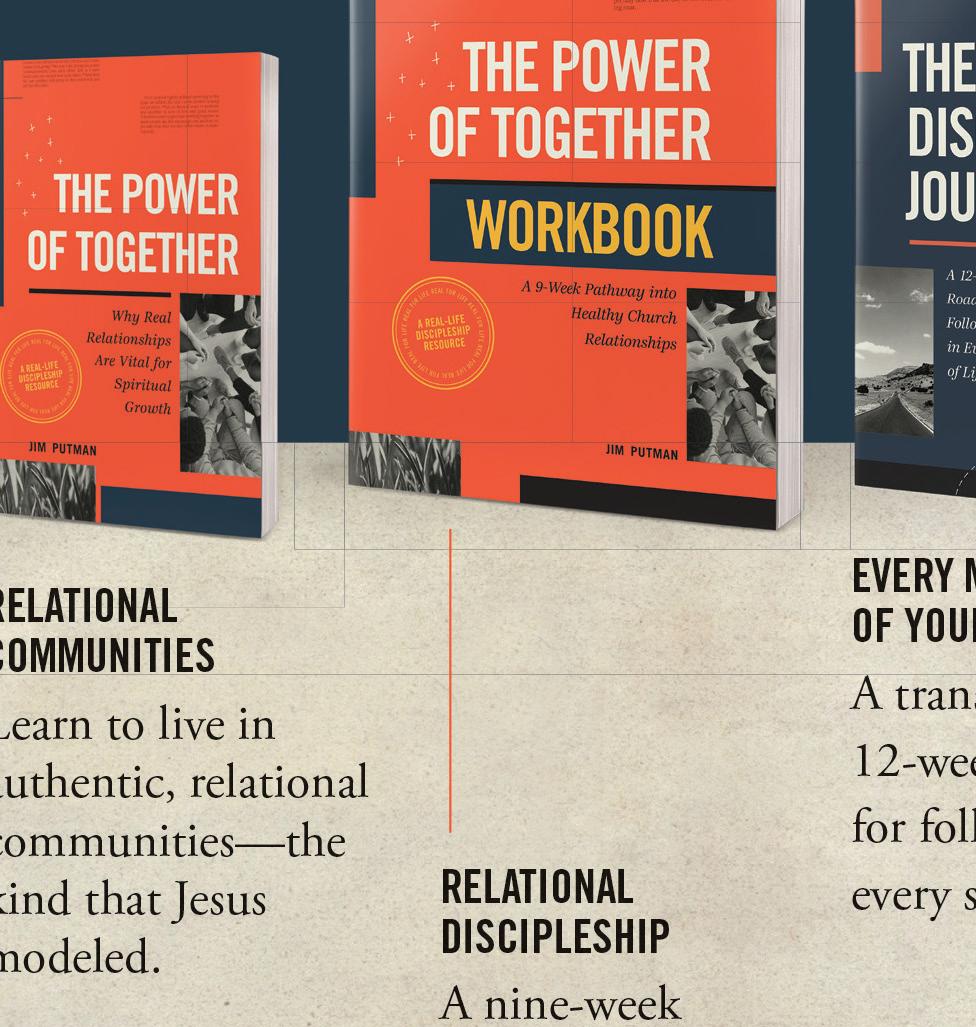









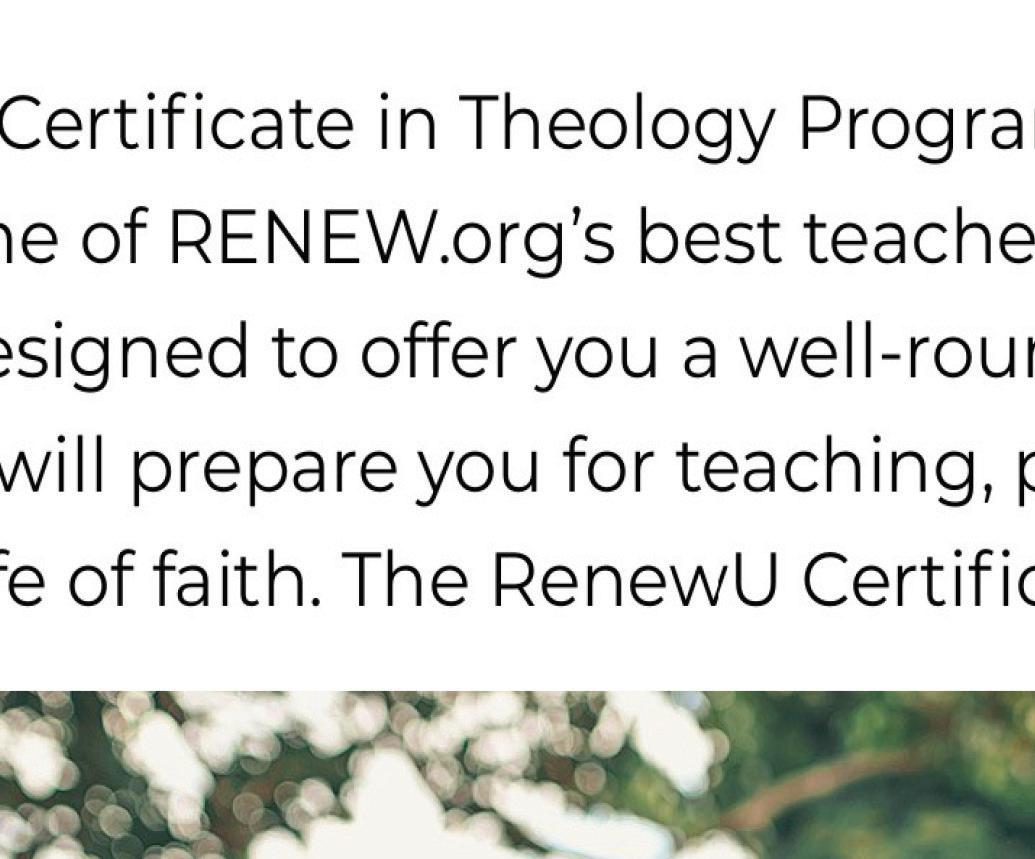






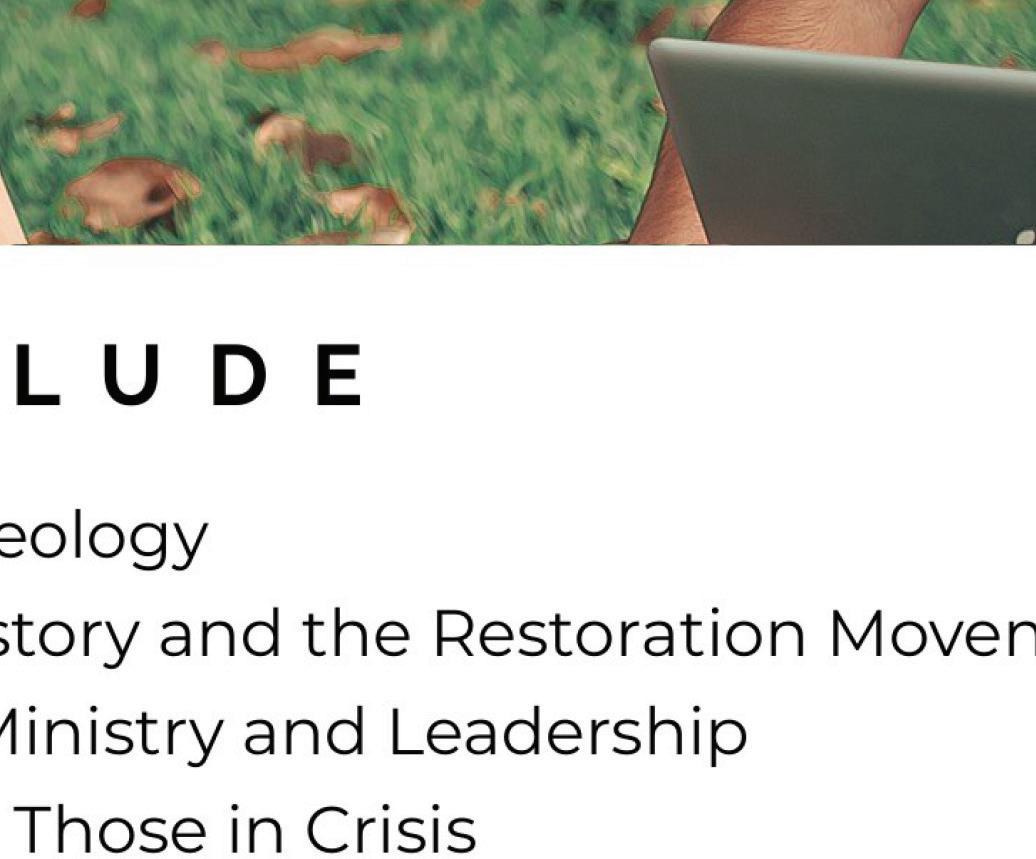








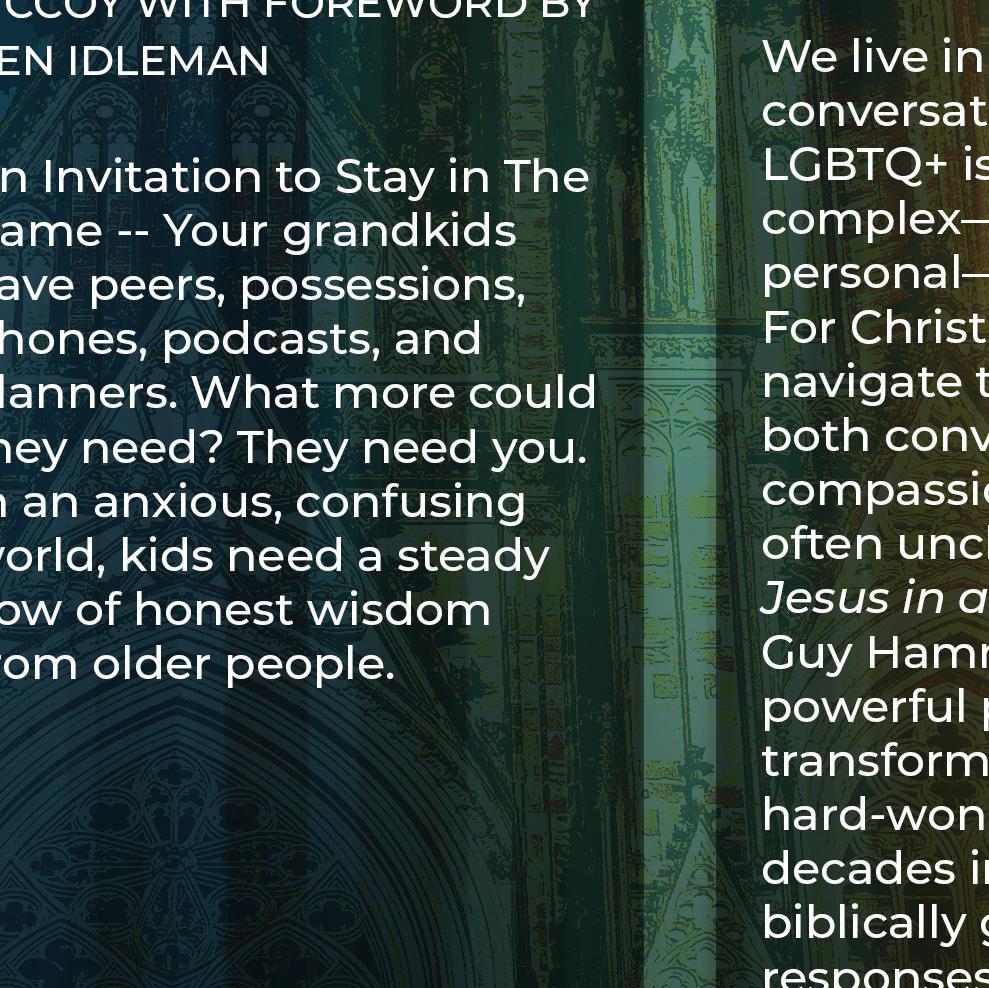



By Laura McKillip Wood
In a small village in the Dominican Republic, Juan and his wife lovingly cared for their children. For years, though, his family struggled with the debilitating effects of drinking contaminated water. His children often fell ill with waterborne diseases, their small bodies fighting fevers and sickness that no remedies cured. The water they relied on was murky, unsafe, and life-threatening, but it was all they had. Juan, like many parents in his village, watched helplessly as his children’s health deteriorated, unsure of what he could do to protect them. One day, a team from Filter of Hope arrived. They brought with them a simple, life-saving gift: a water filter. The team set it up, showing Juan how it worked. He watched as the dirty water turned crystal clear. For the first time, Juan could offer his children the promise of better health.
Founded in 2012, Filter of Hope has made it their mission to provide clean, safe, drinking water to families living in poverty around the world, while also sharing the message of Christ’s love. Through affordable water filters, the organization is tackling the global water crisis one family at a time.

In the early 2000s, Bart Smelley and his family were reeling. He had spent his life chasing success as an entrepreneur and had amassed quite a bit of wealth. Despite financial security, he felt restless and unfulfilled. Then the unthinkable happened. Bart lost several million dollars when he became victim to a major wealth management fraud. This opened the door for Bart to begin asking God about his real purpose in life. By 2012, Bart had founded Filter of Hope to help meet practical needs of people in developing countries while also opening the door to sharing the gospel. What began small, sending water filters to the Dominican Republic, now has reached people in 80 countries around the world. Filter of Hope has distributed over 191,000 filters and brought clean drinking water to over 1.3 million people! Not only that, but over 28,000 people have received Christ because of the important work of Filter of Hope and their partners. Many of these are people belonging to unreached people groups, who did not have access to the gospel before Filter of Hope reached out to them.
A global water crisis continues to affect millions, and families in developing nations still must rely on contaminated water sources. Waterborne illnesses are a significant problem, claiming the lives of children and adults alike. To combat this, Filter of Hope’s water filters can provide families with 250 gallons of clean water daily for up to 10 years. These filters are provided in compact, easily transported kits that fit into a quart-sized bag. The filters use the same technology used in kidney dialysis. Each one is packed with tiny, hollow, perforated tubes, just 0.1 micron in diameter. Dirty water enters the filter, passes through the tubes, and exits as clean water. Harmful microorganisms are too large to pass through the holes and remain in the filter. For example, E. Coli is one of the smallest and most deadly bacteria, and it is 0.3 microns in diameter, making it three times the size of the pores in the filters. After using the filter, the users can clean the filter to maintain it. Contaminants are removed with routine back flushing, allowing the filter to be reused. In addition to being simple to use and highly effective, the filter uses gravity to complete its job, so it can be used in places without electricity and makes no impact on the environment. Installation is easy and takes about 15 minutes. At just $50 per filter kit, the organization makes this life-saving resource affordable for donors, while enabling the distribution of filters to those who need them most.
“
flow of resources to sustain the work being done. These programs make it possible for people to stay connected to the mission and contribute in meaningful ways, even after returning home from a short-term trip to deliver filters.
Beyond providing water, Filter of Hope is dedicated to sharing the love of Christ.
Filter of Hope exemplifies what it means to combine faith with action. By addressing the critical need for clean water, the organization not only improves the physical wellbeing of communities but also brings hope and the love of Christ to those in need. With a mission focused on compassion, partnership, and global impact, they are making a lasting difference in the fight against the global water crisis and spreading the good news.
Filter of Hope offers a variety of ways to contribute, from donating funds to joining mission trips or starting local fundraising initiatives. By supporting their work, individuals become part of a global movement that is transforming lives one drop of water at a time.
For more information, visit: filterofhope.org.
about the author
Beyond providing water, Filter of Hope is dedicated to sharing the love of Christ. Filter of Hope partners with churches in the United States, and those churches provide the funds to pay for the filters. They are then distributed by Christians in the countries where they are needed and by short-term missionaries who travel to the countries to deliver the filters. This allows people to touch one another’s lives and build relationships with Christians who can then show them God’s love. In-country partners are essential to their work. By collaborating with local organizations, churches, and mission teams, Filter of Hope maximizes its impact and ensures its work is culturally sensitive and effective. This partnership model allows the organization to scale its operations and reach more people in need.
Filter of Hope’s holistic approach addresses both the immediate need for clean water and the long-term need for spiritual fulfillment. They view their work not only as a humanitarian effort, but also as a ministry that brings both practical and spiritual healing. Their Community of Hope program also allows supporters to engage in ongoing fundraising efforts, ensuring a steady

/laura.wood2
@woodlaura30
@woodlaura30
lauramckillipwood.com
lauramckillipwood@gmail.com
By Rudy Hagood
We often hear people say, “I’m in a relationship with Jesus Christ.” That’s good, but what does it mean? Could it be we’ve settled for the language of emotional attachment when God calls us into the sacred bond of covenant?
Let’s be clear: a relationship can come and go, like changing social media statuses. A covenant, on the other hand, is a binding promise, sealed with reverence and marked by sacrifice.
God’s messenger Malachi stepped into a society that had grown numb—not from ignorance, but from indifference. They knew the rituals, recited the prayers, and offered sacrifices. But it was all mechanical. Their worship lacked heart. Their lives lacked honor.
Malachi had a burden to share—a holy discontent. He wanted to restore genuine worship, not just empty gestures. He addressed corruption among priests, rising divorce rates among the people of God, and the infiltration of worldly priorities into sacred spaces. Politicians had taken office in the sanctuary. The community of God was unraveling from the inside.
Does this sound familiar?
Like ancient Israel, we too have become experts at disintegrated relationships. We can quote Scripture but ignore its meaning in our practice. We can raise hands in worship while harboring bitterness in our homes. We’ve confused emotion for devotion. But the issue isn’t that we don’t know better, I fear it’s that we don’t care enough to change.
“ A covenant is a binding promise, sealed with reverence and marked by sacrifice.
The word covenant isn’t just spiritual jargon. It’s deeply biblical and profoundly serious. A covenant is a binding agreement, a sacred promise sealed by sacrifice. In God’s Word, it is a divine promise that redefines the future. Malachi reminded Israel’s priests of their calling: “My covenant with him was one of life and peace . . . he revered Me and stood in awe of My name” (Malachi 2:5, Holman Christian Standard Bible).
God’s covenant with Levi was rooted in reverence and truth. The priesthood was to preserve knowledge, guide others in righteousness, and serve as God’s messengers. But the priests had become corrupt, turning people away from truth instead of toward it.
The result? A fractured covenant. A broken community. A dishonored God. Yet this wasn’t just about priests then. First Peter 2:9 tells us, “But you are a chosen race, a royal priesthood, a holy nation, a people for His own possession.” We are the priests now. We are the messengers. The call to covenant is not just ancient; it’s our calling today.
Malachi’s rebuke extended beyond the altar into the home. “You cover the Lord’s altar with tears. . . because he no longer regards the offering. . . . Because the Lord has been a witness between you and the wife of your youth, against whom you have dealt treacherously, though she is your companion and your wife by covenant” (Malachi 2:13–14).
The people wept because God seemed distant. But his silence was a response to covenant betrayal. They had abandoned their marriages. The sanctity of covenant was broken at home long before it was noticed in the temple.
And it wasn’t just about personal choices. God saw each broken marriage as an offense to the entire community and to himself. Because a covenant with your spouse is also a covenant with the people of God, and ultimately, with God himself.
This truth still stands. Our private compromises have public consequences. What we honor (or dishonor) in marriage, in friendship, and in community reflects our view of God’s covenant with us.
Let’s be honest: puppy love is emotional. It fades when it’s no longer fun. But covenant love is volitional. It chooses to stay when everything screams to run.
Mark 12:30 reminds us of the greatest commandment: “Love the Lord your God with all your heart and with all your soul and with all your mind and with all your strength.” Covenant love encompasses every part of who we are. It’s not a fleeting feeling; it’s a decision. As the late Timothy Keller said, “Jesus didn’t love us because we were lovely. He loved us to make us lovely. That’s why I am going to love my spouse.” That kind of love— unconditional, unwavering, covenantal—is what Christ modeled for us on the cross. In his agony, he stayed. He forgave. He fulfilled his vow.
I want you to imagine my wedding ring. It’s not the sparkle that makes it beautiful; it’s the shape. There’s
no beginning. There’s no end. It’s a circle, a perfect symbol of never-ending covenant.
In a world full of terms and conditions, covenant says, “I’m in this, no matter what.” It’s the same love God extended to Abraham, to Israel, to you, and to me through Jesus Christ. And it’s the kind of love he now calls us to live out—with our families, our churches, and our neighbors.
God cares deeply about your commitments, your words, your promises, your relationships, your worship. And he’s calling you not just into a feeling of faith, but into a covenant of faithfulness.
So the question now becomes, “Do you care?” Do you care enough to honor your vows? Do you care enough to stay when it’s hard? Do you care enough to live like you believe God is real?
Covenant-keeping Christians change families. Covenant keepers change their communities. Covenant keepers change the world. Let’s no longer hold to the doctrines of the world. Let’s honor covenant with God!
about the authors
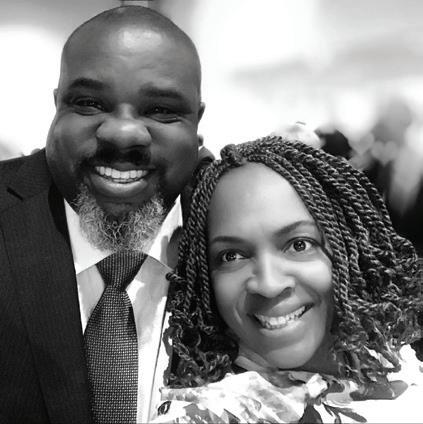
Rudy Hagood serves as Associate Director of Student Ministries at Pepperdine University and as Executive Pastor with Reunion Church in Los Angeles. He is married to the lovely and dynamic Osharye Hagood. He is a graduate of Hope International University and Southwestern Christian College.
@rudy.hagood
@rudy_hagood_













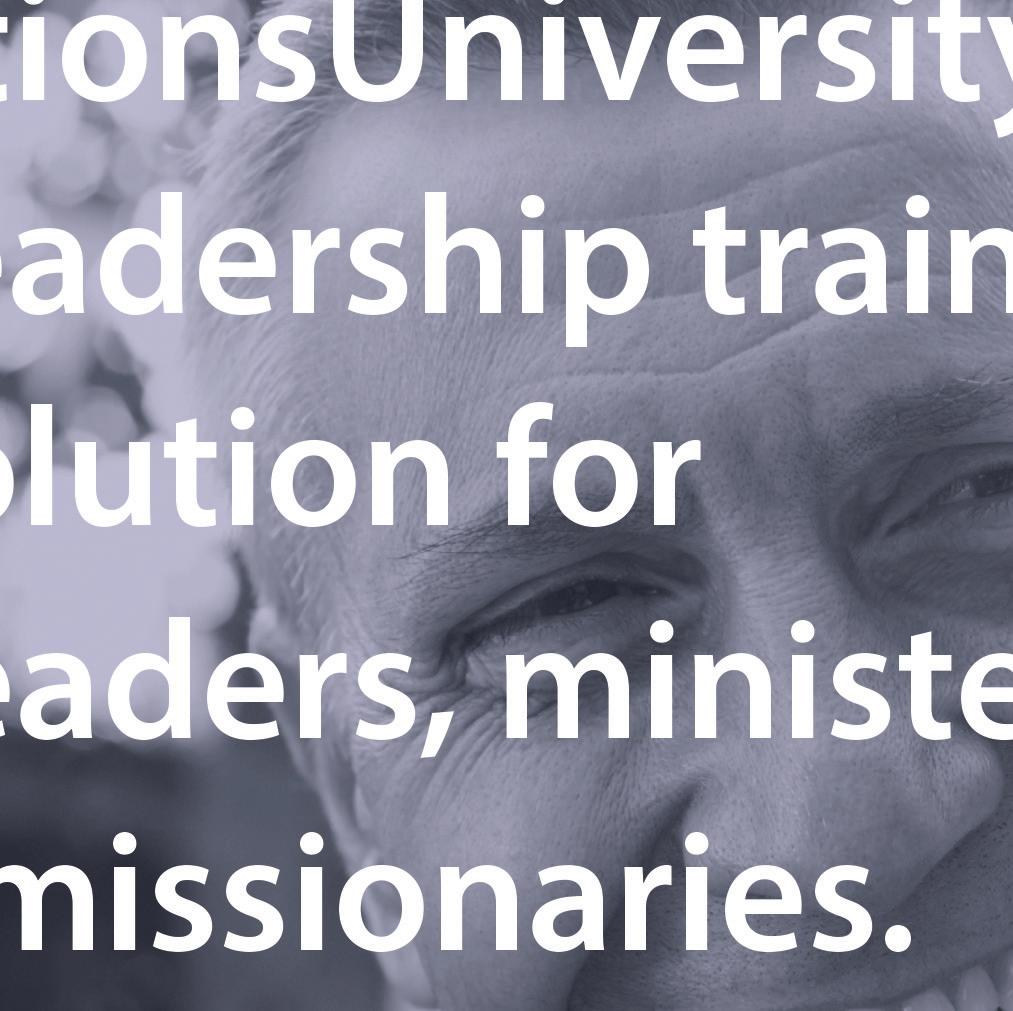












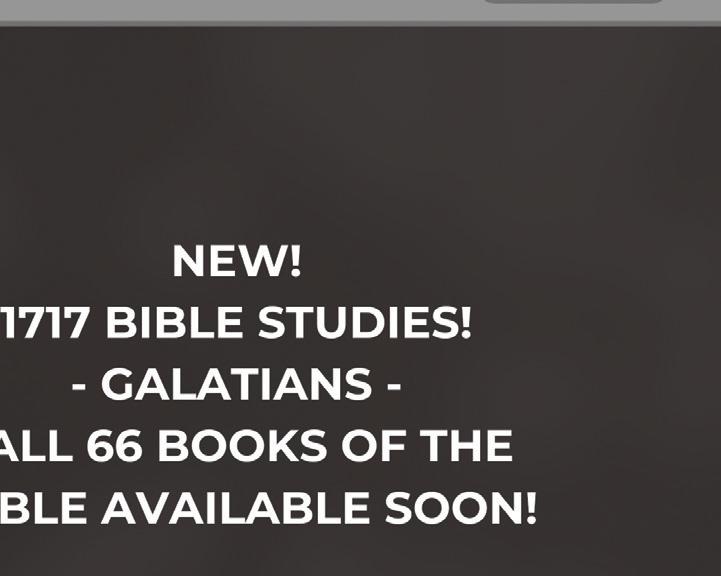



































By Chris Philbeck
One of the things I do from time-to-time is review sermon manuscripts for people looking for honest and constructive criticism. When I do, I try to remember these words from John Zehring in his book, Clergy Public Speaking Guide (Improve What You Already Do Well). “Consider the difference between writing a story for a newspaper and writing the same for radio. It is a different style of writing. People read the newspaper but listen to the radio. Likewise, people listen to your sermon. So a sermon must be written for the ear, not the eye.” Zehring goes on to talk about the practice of speaking your message out loud as you write it, to see how it sounds to you. He writes, “Imagine how it will be heard by your listeners. Rehearse it out loud before delivering it. Write for the ear, not for the eye.”
A recent sermon I reviewed from James 4:13-17 contained these three important elements: Explanation, what you want the listener to know; illustration, how you want the listener to feel; and application, what you want the listener to do. But it was heavy on explanation. And while the illustration and application were written in a conversational way that would engage the listener, the explanation was a little too “wordy.” So I made some notes and rewrote (simplified) a few of the longer statements as examples of how they might be written for the ear, not the eye. In the end, this led to a great conversation with the sermon writer and, from my perspective, a great sermon.
As simple as it sounds, when we talk to people (which is what we do when we preach), we don’t read to them; we have conversations. What does that mean? It means our sentences are shorter, and we speak in phrases with natural pauses between our thoughts. The tone of our voice and the pace of our words vary. The passion we feel about what we are saying rises and falls in appropriate measure. And we look the person or people we’re talking to in the eye because we’re having a conversation. Dean Kember, in his book, Effective Preaching: A Manual for Students and Pastors, says it like this:
First, in speaking a restricted vocabulary is used. The speaker could multiply the range of meaning of common words by the proper use of facial expressions, gestures, and inflection. Second, public address is very concerned with how language sounds to the ear. What sounds good to a listener, especially restatement and repetition, would not be pleasing to a reader. Finally, words should be chosen carefully. Preachers are called to employ words that allow people to feel, smell, taste through the mind’s eye.
The truth is written words can be reviewed over and over again. But once a word is spoken, it disappears, except in memory. So when writing a sermon, you have
to find a way to make your words memorable. No one ever made their spoken words more memorable than Jesus. And while he did this in multiple ways, here are a few that stand out to me.
Jesus asked questions. In Matthew 16:13 Jesus asked the disciples, “Who do people say the Son of Man is?” After they gave him different answers, he said in Matthew 16:15, “‘But what about you?’ he asked. ‘Who do you say I am?’” (New International Version). In Mark 10:51, during an encounter with a blind man, Jesus asked, “What do you want me to do for you?”
In Luke 14:3 Jesus asked the Pharisees and experts in the law, “Is it lawful to heal on the Sabbath or not?”
“
Word and the human listener. It is not enough to just harvest the wheat; it must be prepared in some edible form or it can’t nourish and delight. Sound preaching arises out of two loves—love of the Word of God and love of people—and from them both a desire to show people God’s glorious grace.
At the end of the day, preaching is a living transaction between the preacher and those who are listening.
While none of these questions came in the form of a sermon, they all set the stage for Jesus to be able to provide an answer. Asking questions in a sermon can be powerful in helping the listener have a better understanding of themselves, a better understanding of what they need, and a better understanding of what’s true. All of which can make the message memorable.
Jesus used repetition. In the Sermon on the Mount, Jesus used the word blessed nine times in nine sentences to make his teaching on what true righteousness looks like memorable. Later in the same sermon he used the words, “You have heard that it was said. . . . But I tell you,” six different times to describe the difference between empty religion and righteousness that was real. In the Gospel of John, Jesus used the words, “I am,” seven different times to describe his identity and purpose. There’s power in repetition because repetition is the persuader of the mind, and what gets repeated gets remembered.
Jesus told stories. Stories do many things. They connect us, they build bridges, they illustrate truth, but most of all, they make truth memorable. Whether it’s a story about a lost sheep, a lost coin, or a lost son (Luke 15), or a story about two houses that looked identical on the outside but were not the same because one foundation was built on sand while the other was built on rock (Matthew 7:24-27), stories make truth (words) memorable. Stories have the power to pull people in, keep them engaged, and help them experience the transforming power of God.
At the end of the day, preaching is a living transaction between the preacher and those who are listening; the words we speak must represent that truth. So, when you sit down to prepare a sermon, write for the ear, not the eye. The late Tim Keller described it like this: “In the end, preaching has two basic objects in view: the
about the author

/PastorCPhilbeck
@cphilbeck
@pastorphilbeck









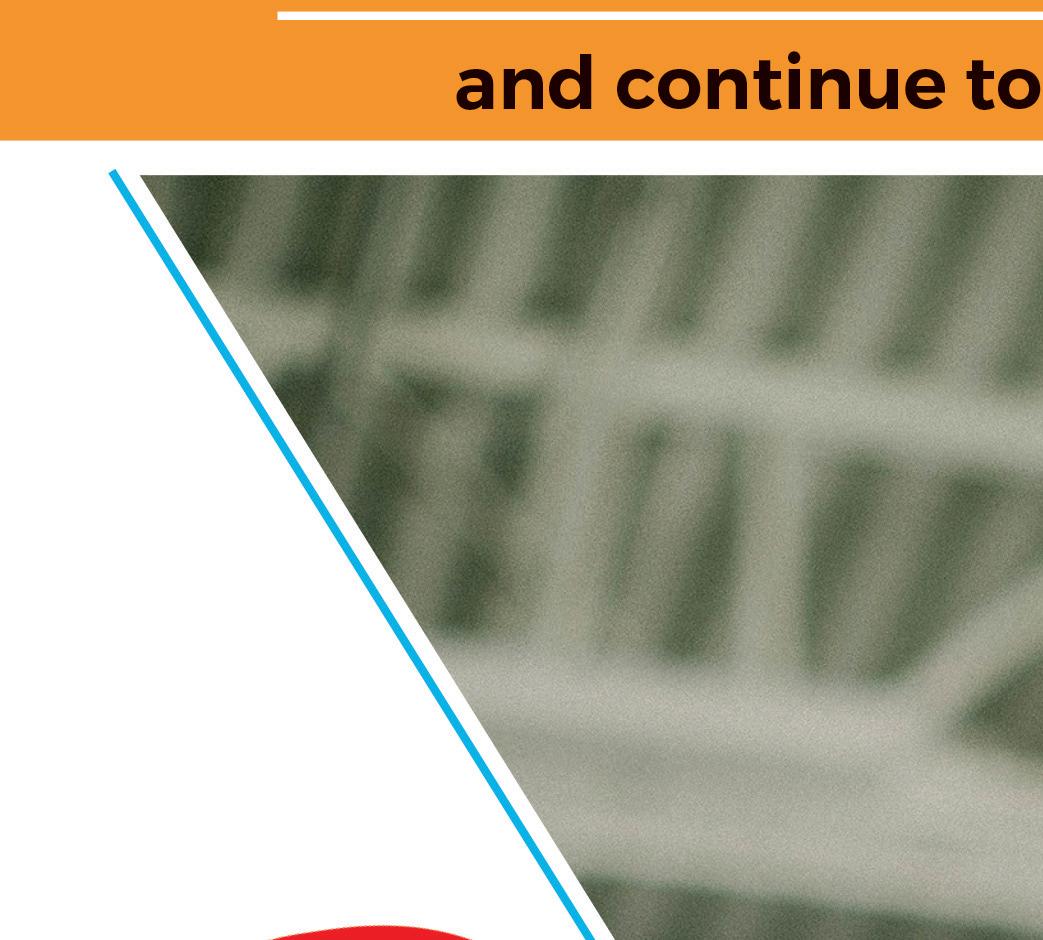





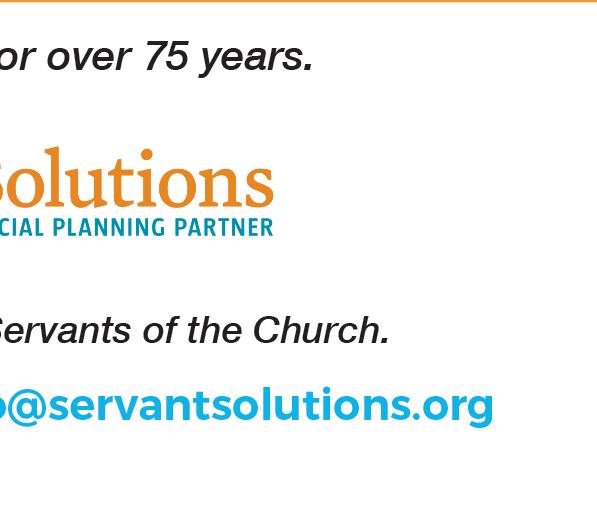
metrics
By Kent E. Fillinger
Load management in the NBA started in the early 2010s, with the San Antonio Spurs leading the way by resting stars, even if they were healthy, to preserve them for the playoffs. It gained attention when the league fined the Spurs in 2012.
Recent research doesn’t prove any connection between load management and reducing the prevalence of sports injuries, but there’s still a case to be made that this practice improves the long-term health of a player by reducing the cumulative load on players’ bodies and thus prolonging their careers while helping them to maintain their peak performance.
Load management is unheard of in the pastoral world, but long-term health is essential for ministry effectiveness and longevity. According to a 2025 LifeWay Research report, 57 percent of ministers say their role is frequently overwhelming, up slightly from 54 percent in 2015 but down from 63 percent in 2021.
A 2021 LifeWay Research report found that when it came to self-care, more than half of the ministers said they find consistently exercising (59%) and avoiding overcommitment and overwork (55%) to be challenging in their ministry. Slightly less than half said they struggle with eating right (49%), and 45 percent said consistently resting was a challenge.
Additionally, half (51%) of ministers said time management is an aspect that needs attention in their lives. Forty-three percent of ministers said they need to give more attention to developing a balance between work and home. Younger ministers, those between 18 and 44, were among those most likely to say they needed to give attention to time management (58%) and their work/home balance (52%).
The reality is there is not balance or equilibrium in life or in ministry. We need to change the narrative and stop thinking that a perfect work-life balance can be achieved.
A 2016 research report from The Tavistock Institute of Human Relations showed that strict separation between work and life may create more stress, not less. The study identified two types of people: “segmenters,” who tried to keep work and life separate, and “integrators,” who saw work and life as interconnected and switched between them fluidly.
Surprisingly, integrators felt less stressed and were more productive. They were better at handling interruptions, adapting to shifting priorities, and maintaining energy levels throughout the day. The reason?
Switching between work and personal life is like a muscle. The more you practice it, the easier it gets. And when you get better at shifting modes, you spend less time fighting against reality and more time getting things done.
“ God created you to be a human being, not a human doing; therefore, God values you as a person, not as a producer.
Organizational consultant David Burkus suggests “instead of trying to separate work and life, think of them like ingredients in a recipe. The goal isn’t to keep them apart—it’s to blend them together in a way that works for you. The goal isn’t to be available 24/7. It’s to be flexible enough to get things done without burning yourself out. And that flexibility looks different for everyone.”
While work-life balance is a myth, dealing with various tensions is a reality in ministry. And experiencing tension often leads to stress and fatigue. Andy Stanley said, “A certain amount of tension is a natural part of life and business. Tension, managed properly gets things done.” He also noted that we need to learn to discern between a problem that needs to be solved and a tension that must be managed in ministry.
Some common ministry tensions that must be managed include the following:
Tradition vs. Innovation: Carey Nieuwhof said, “The past has a nostalgia to it that the future never does. The challenge for the leader is to cast a vision that is clear enough and compelling enough to pull people from the familiar past into a brighter future.”
Empowering New Leaders vs. Pursuing Excellence: Giving young or new volunteer leaders enough ministry “reps” instead of relying on paid staff to do most everything is the only way to develop and grow your leadership pipeline, but that process is messy and often results in some mishaps and mistakes.
One Big Family vs. Multiple Groups: Again, I appreciate the insight of Carey Nieuwhof who said, “The goal is not to create church where everyone knows everyone but to create a church where everyone is known.”
Evangelism vs. Discipleship (Reaching People/Edifying Believers): Most churches tend to naturally gravitate toward one or the other based on the gifting of the leaders; but emphasizing both are essential to the health and growth of the church.
Doing For vs. Being With: The “Martha and Mary Paradox” is real. Doing ministry for Jesus is often easier
than spending time with Jesus. But staying spiritually healthy is essential for immediate and long-term ministry effectiveness. Giving attention to our soul care is critical. Jenni Hoag describes soul care as “thoughtful and careful attention to the inner being of the individual.” In many cases, soul care does not make it on our schedule until a crisis happens. Remember God created you to be a human being, not a human doing; therefore, God values you as a person, not as a producer.
Work vs. Rest: God is a worker. From the beginning of the Bible, we are faced with the inescapable fact that work is part of God’s character and nature. Work in different forms is mentioned over 800 times in the Bible. The Hebrew word avodah is used 289 times in the Old Testament and is translated variously as “worship,” “serve,” and “work.” In some verses, avodah means to work, as in to cultivate a field or to do common labor. In other verses it means to worship, as in worshiping the Lord.
But God also set an example for us to rest from the beginning. Have you ever wondered why God didn’t create the world in one day? I’m confident he could have spoken everything into existence in one day had he wanted, but instead he chose to give us a pattern for the oscillating nature of work and rest, and he declared the Sabbath day to be holy.
Jesus taught us that the Sabbath is a gift God gives us and not a list of rules to follow (Mark 2:27-28). Wayne Muller in his book Sabbath said, “The busier we are, the more important we seem to ourselves and, we imagine, to others.” This sense of self-importance that’s often a byproduct of ministry is a tension we must fight to experience the intended benefits of Sabbath rest. Our capacity to be fully engaged depends on our ability to periodically disengage. A.W. Tozer said, “Rest is not something we do; it is what comes to us when we cease to do.”
Tim Arnold, who wrote the book, The Power of Healthy Tension, said tensions are unsolvable and unavoidable, but the good news is these tensions can be managed and even leveraged.

Kent E. Fillinger serves as president of 3:STRANDS Consulting, Indianapolis, Indiana, and regional vice president (Ohio, Pennsylvania, Michigan) with Christian Financial Resources. /3strandsconsulting 3strandsconsulting.com
Just as Aaron and Hur supported the arms of Moses to enable Joshua and the Israelites to carry out their mission at Rephidim (Exodus 17:8-16), so church elders and boards need to lift the arms of their church’s ministers to be a catalyst for the daily and long-term health of the entire church.
Here are some great questions from the Evangelical Council for Financial Accountability that a church eldership or board can ask their church staff throughout the year to encourage their personal and pastoral health:
• What are your biggest prayers right now, and how can we join in praying for you?
• What has God been teaching you during your worship or devotional times?
• How can we help you have margin in your schedule for health check-ups?
• How are we doing honoring your time at home? (Bonus question, if applicable: What do your spouse and kids think?)
• What did you do with your vacation days this year?
• What is your favorite “third place”?
• If we were to help make a way for you to experience a spiritual retreat (or similar experience) this year, what would be a few of your top choices?
Elders should also encourage their pastoral staff to make time daily for Bible reading and prayer, to take a Sabbath day off each week, and to use their allotted vacation days each year.









My wife still laughs at me about this. When I was in my early 20s, I tried to do what I called a “sleep fast.” I knew that physicians could reduce the number of hours they needed for sleep simply by pushing through and forcing their minds and bodies to adjust. So I tried it. It worked, but only to make me grumpy, foggy, and less productive. It turns out that my body needs eight hours of sleep every night. To this day, it’s rare that I don’t get that sleep because I realize that I am more productive, more pleasant, and more spiritual after a good night’s sleep. What fueled this ill-advised “sleep-fast” wasn’t wisdom but comparison—that silent thief of contentment that had me measuring my worth against colleagues who supposedly thrived on five hours of sleep. Paradoxically, they also got less done with five hours of sleep than I was getting with eight. When I surrendered to my God-designed need for eight hours of sleep, I discovered a paradoxical truth: by embracing limitation, I unlocked capacity to accomplish what God intended, in the way he intended.
The common lament, ”I wish there were more hours in a day,” reveals our culture’s troubled relationship with time. Not me. I am exhausted by the end of the day. I don’t need a 30-hour day to drive me to an early grave. God, in his infinite wisdom, designed our days and hours with perfect precision.

By Mark Moore
This principle doesn’t just work each day; it works each week with what the Bible calls “Sabbath.” The Sabbath, one of God’s greatest gifts to humanity, was so important that God embedded it in the law. In fact, it’s one of the big 10. Consider this striking detail: Within the 317 words comprising the Ten Commandments, one-third focuses solely on the Sabbath command, while another third addresses idolatry. This divine emphasis speaks volumes—these two commands, so interconnected, consume two-thirds of God’s foundational law. In our modern context, this ancient emphasis proves prophetic, as our restlessness often stems from our idolatrous pursuit of success and security. The modern American paradox is painfully evident: we worship our work, work at our play, and merely play at our worship—a tragic inversion of divine priorities. As it turns out, the ancient emphasis on these two commands is desperately needed in our modern world.
The Sabbath principle isn’t merely Mosaic legislation, but Edenic design—not just a command delivered at Sinai, but a rhythm woven into creation’s very fabric. When God rested on the seventh day, he wasn’t recovering from exhaustion but rather establishing a pattern for human flourishing. This divine rhythm echoes through creation like a heartbeat, as essential to our well-being as gravity is to our physical world. Moreover, Sabbath is not merely recuperation, it is celebration. While preachers often wax eloquent about the oppressive oral traditions added to Jewish Sabbath regulations, they fail to recognize that Jews do not perceive the Sabbath as an oppressive obligation. It is a highlight of their week they look forward to and feel sorry for the rest of us who miss this rest.
Curiously, this principle is quite similar to the principle of the tithe. Perhaps you’ve heard in your own church a pastor teach that you can get more with 90 percent of your income after returning 10 percent to God. Those statistics are quite close to the Sabbath principle. You can get more accomplished in six days after giving one day to God. That one day represents 14 percent of your time whereas a tithe represents 10 percent of your income. There seems to be a pattern here.
Yet despite this clear biblical mandate, I’ve struggled with Sabbath. It’s no mystery why, and it’s certainly not noble. Here is the underbelly of my workaholism (my apologies if this is too real or raw): I don’t believe God. I believe in God; I just don’t believe him when he says he will recognize and validate me. Like many typical type-A males, I get my validation through my work. There is nothing wrong with needing validation. We all do. That’s part of our created nature. My black hole of verification, however, has been dug by an idolatry of individualism (not unlike Eve’s), wanting to be my own God and provide for myself what he has already promised—to see me, know me, love me, and affirm me. To fight this lifelong current of selfimposed slavery, I’ve adopted a simple but effective rule: If I cannot accomplish my to-do list in six days, then I have allowed something or someone to become my Lord other than Jesus. After all, he is the one who ordained me to rest and invited me to find that rest in him (Matthew 11:28–30).
Don’t be surprised if you struggle with Sabbath or even wrestle with Jesus over it. The issue of the Sabbath was the single greatest contention in Jesus' earthly ministry. He got in trouble over Sabbath more than any other single issue. In one particularly poignant encounter, his disciples were plucking heads of grain while sauntering through a farmer’s field. The Pharisees called “foul,” not for thievery (since this practice was prescribed) but for violating the unwritten rules of what constitutes work.
According to their traditions, the disciples violated the rules of the Sabbath in three ways, by this one simple act. When they plucked the heads of grain, they were guilty of harvesting. When they rubbed them in their hands to loosen the seeds, they were accused of threshing. And when they blew off the chaff to leave only the grain, they are blamed for winnowing. Ridiculous, right?! For sure. Jesus called them on it with a profound declaration: “The Sabbath was made for man, not man for the Sabbath” (Mark 2:27, New International Version). It’s not meant to be a burden but a blessing. What he said next, however, was not merely profound; it bordered on blasphemy: “So the Son of Man is lord even of the Sabbath” (Mark 2:28). But is he? Is he the Lord of your Sabbath?

INTENDED, IN THE WAY HE INTENDED.
GOD, IN HIS INFINITE

DESIGNED OUR DAYS AND HOURS WITH PERFECT PRECISION.
We are a generation drowning in anxiety yet starving for rest—a contradiction evidenced by the 35 percent of Americans who move through life in a fog of sleep deprivation (FastStats: Sleep in Adults, Centers for Disease Control and Prevention, May 15, 2024). Which is stunning given that we have plenty of excess time we could be sleeping. After all, the average American spends over three hours on their smartphone each day. That’s in addition to two and a half hours on computers (excluding work), and another three hours watching TV. All told, that’s over 10 hours (per datareportal.com). These hours offer untapped potential for transformation—sacred moments we could reclaim for sleep, prayer, reflection, and the very practices that would soothe rather than stimulate our frayed nervous systems.
Our culture celebrates busyness and equates rest with laziness. Our constant connectivity has made true rest even more elusive. We’re always available, always “on,” and increasingly burning out. The statistics are sobering—a third of American adults are sleep-deprived, not because they’re too busy, but because they’re too preoccupied to truly rest.
Here are four simple practices that have helped me make progress.
Sacred Scheduling. Carve your Sabbath into the granite of your calendar and protect it relentlessly. You can ensure you rest with one simple act: Turn off your phone and viciously reject answering email. Warning: you are going to be insulted by how quickly you realize you are replaceable and irrelevant to those you crave to be necessary for. Most of our workaholism is not due to our dictatorial bosses who demand relentless access. Most of us work when we should rest because we need to be needed.
Holy Boundaries. If you change your availability, you will likely need to let some people know that you will not be answering your phone, editing their documents, replying to their emails, or hopping on to a Zoom call. It would be rare for someone who truly cares about you (including an employer) to object to the boundaries that will keep you healthy and productive.
Communal Celebration. The beauty of Sabbath is not merely our connection with God; it’s our connection with others. These two are not mutually exclusive. As we connect with others, they help us experience God in community in ways that expand our awareness of and appreciation for the divine. Our time with family, particularly our spiritual family, fuels our rest for worship.
Freedom in Grace. Don’t reduce Sabbath to a law. Sabbath should be the best day of your week, not a restriction for our weekend. There will be seasons when you miss a week and seasons where your weekend is extended to a week. By celebrating the gift of God rather than obliging ourselves to a rule of religion, we will free ourselves for true rest and worship regardless of where it lands in our schedule.

In our anxiety-saturated society, embracing Sabbath is revolutionary—a countercultural declaration that we trust God’s sufficiency more than our own striving. When we embrace Sabbath, we declare our dependence on a sovereign God who neither slumbers nor sleeps. We shift our worth from productivity to community, recognizing we ourselves are cherished children of God. As we practice this counter-cultural rhythm of rest, we model a different way of being, one that points to the ultimate rest found only in Christ.
As someone who has moved from Sabbath-breaking to Sabbath-embracing, I can testify that God’s command to rest is truly a gift. When we stop trying to be our own saviors and trust in God’s provision, we find the rest our souls so desperately need. In a world that never stops, maybe the most counter-cultural thing Christians can do is to regularly cease our striving and remember that the God who rested on the seventh day is waiting to meet us in the margin.
It is there—in the sacred margins we guard from invasion—that we discover the magnificent foretaste of our eternal inheritance: the soul-deep rest found only in Christ. The author of Hebrews connects Sabbath rest with our eternal hope: “There remains, then, a Sabbath-rest for the people of God” (Hebrews 4:9). When we practice weekly rest, we’re not just following a command—we’re rehearsing for eternity.





BY DAVID LIMIERO

Pictures are powerful. Take the phrase “work-life balance” as an example. It comes from an old-fashioned balance scale, with weights on opposite ends of a long bar centered on a fulcrum. Slide one of the weights too far to the left or right and it “tips the scale” so that one side outweighs the other. Move the weights differently and one will counteract the other until the bar is carefully balanced on the fulcrum. Unfortunately, even a slight touch to the bar will cause a lot of up and down motion before the scale slowly comes back into balance.
That might be an apt description of your life and ministry right now. For many, the scale is tipped to one side (most often ministry, not life), with one side outweighing the other. For others, balance is temporary and tentative, easily bumped up and down by an unexpected email, call, meeting, or pastoral emergency.
The quest for balance is often fleeting. You’ll find plenty of tips online about achieving work-life balance. Many are helpful. But in this article, I want to focus on mindsets—the way we think—more than mechanics. Here are some key mindsets needed in the quest for work-life balance.
step 01.
If you don’t believe balance is possible, you’re unlikely to find it. We often struggle with what author Jim Collins calls the “Tyranny of the Or.” This “either-or” thinking is crippling and shuts down transformation. Often this looks like a choice between family and ministry. I only have two choices: Prioritize family and sacrifice ministry. Or prioritize ministry and sacrifice family.
Author Michael Hyatt describes another “either-or” fallacy. We can succumb to the “Hustle Fallacy.” Work hard and fast now, knowing that we are sacrificing some of our values in the hope that it will be better someday in the future. Work now; rest later. Or we can succumb to the “Ambition Brake.” In order to protect life and family, we push the brake pedal on ministry growth, settling for less than could be if we put in our full effort.
Notice the unconscious assumption behind those examples— I can’t have both! But what if you could? What if you could have a thriving ministry AND a thriving family? What would change if you opened yourself up to the possibility of “bothand” thinking instead of “either-or” thinking?
Author Jim Collins calls this the “Genius of the AND.” Michael Hyatt calls this the Double Win: “Win at Work AND Succeed in Life.” Author Mike Breen has a great book titled Family on Mission that replaces the false dichotomy of “family before mission” or “mission before family” with “family on mission.” And Paul’s instructions for selecting elders and deacons put as much emphasis on managing life as they do on excellence in ministry.
This isn’t conflict—it’s paradox. Jesus says in John chapter 10 (English Standard Version), “I came that they might have life and have it abundantly.” He also says in Matthew 16, “If anyone would come after me, let him deny himself and take up his cross and follow me. For whoever would save his life will lose it, but whoever loses his life for my sake will find it.” These seem to be in conflict—abundant life or self-denial. Instead, there’s a paradox. We can take up our cross AND have an abundant life. Start by believing balance is possible. Not either-or, but both-and.
If you don’t believe balance is possible, you’re to find it.

Notice something about the phrase “work-life balance.” There are only two components: work and life. For many, that translates into the work of ministry balanced with a big bucket called “life.” It’s another example of binary thinking—just two options. That’s how many of us think. It’s how I thought for decades in full-time vocational ministry. But when I came across a tool called the wheel of life, it changed the way I look at work-life balance.
If the old picture of work-life balance is an old-fashioned scale with weights on each end, the wheel of life is more like a pizza, or a pie. Each slice represents an important aspect of work and life. This tool has been around for more than 60 years, and there are many different versions with slightly different slices. My favorite version includes these slices:
Rest is restorative. Rejuvenating. Recharging. Re-energizing. Refueling. It adds energy.
Escape does none of those things. Instead, it offers a temporary disconnect from responsibilities and commitments. It doesn’t add energy, it just provides a momentary relief from the pressure.
Most of us know and have experienced the difference between the two. An evening spent scrolling social media or binge-watching TV has a far different impact than an evening out with friends or a walk in the woods.
The challenge is not knowing the difference between rest and escape; it’s having the energy in the moment to choose rest over escape. Sometimes we’re too tired to think of ways to rest!
In contrast, escape is easy. It doesn’t require any advance planning or preparation. It’s something we can easily fall into, not realizing how much time we’ve spent until hours have gone by and we are no more restored than before we started. Rest takes planning and preparation. That takes energy. And the moment when we are most in need of rest is the time we have the least energy available for planning and preparation!
One solution to this is to create a replenishment calendar:
• Create a list of things that are restful and restorative.
• Categorize the list by the amount of time required for each one. For example, I can prepare and drink a cup of hot tea in about 15 minutes. A hike in the local park will take two to four hours. Aim for a list of activities ranging from 15 minutes to overnight.
• Determine how often you need each item. Once a day? Once a week? Once a month? Once a quarter?
• Take advantage of small, unexpected breaks to choose a 15-minute rest item over escape.
Note that the Love slice works for both marrieds and singles. And Work (or ministry) is just one of nine slices. The other eight represent some non-work aspects of life!
Here’s how you use the wheel of life:
• Give yourself an honest rating on how well you are doing on each slice. Use a number scale from 1 to 5.
• Notice the gaps between where you are and where you want to be.
• Determine (in prayer and with input from others) what steps you need to take to become more balanced.
• Pick two or three of the most important and get to work.
• Schedule and block out times for the larger rest and replenish items on your calendar.
If you wait until it’s time to rest, you often won’t have the energy to choose rest over escape. When you create a replenishment calendar, you spend the energy in advance (before you need rest). That gives you a ready-made list of restful activities available for both small, unexpected time slots and planned longer times or renewal.
Project (and Protect) Your Calendar
Many of the steps you created above, including time for rest, will require time on your calendar. Since ministry and family calendars are often very full, you’ll need not only to protect your calendar, but also to project your calendar.
The process is simple. Look ahead and block your priorities as appointments on your calendar. This goes beyond the normal ministry and family items. When will you make time for taking care of your body? For hobbies? For your own personal spiritual growth? For larger commitments like a weekend away with your spouse or kids? For replenishment items?
There’s one critical component here: you need to look at least as far ahead in your personal/family calendar as you do for your church or ministry calendar. My wife and I plan a rolling six months, blocking out our key personal and family times before accepting ministry or work engagements. If your church or ministry plans a full year in advance, you’ll want to be ahead of that schedule. Protect what’s most important when you’re creating the big picture, and you can avoid many of the conflicts that happen when planning a week or a month at a time.
While the process is simple, the practice is not. I remember sitting in an online meeting with leaders when the presenter asked the question, “How many of you believe it’s important to keep your commitments?” All of the hands went up. “How many of you think that not keeping your commitments signals a lack of integrity?” Again, 100% of the hands went up. Then the final question, “How many of you routinely break commitments you’ve made to yourself?” There was an awkward pause, and a quick glance around the screen showed all of the hands raised. The rest of the discussion that day focused on the question: “Why do we routinely honor our commitments to others (particularly in ministry), but fail to honor commitments to ourselves?”
I encourage you to reflect deeply on that question and engage whatever accountability you need to stay committed.
In 2015 I took a full-day retreat in the California mountains to work on my first life plan. Part of the exercise was imagining my own funeral and then writing down what I wanted the important people in my life to say in their eulogies. As I did this, I was deeply moved emotionally. I still had kids at home, still felt young, and was actively engaged in full-time ministry that I loved. It was hard—but powerful—to think about death, and the legacy I might leave behind.
Ten years later my kids are flourishing. They love Jesus and his bride, the church. We have a beautiful granddaughter and another grandchild on the way. I’ve got a thriving business and am actively engaged as a volunteer in my church. Jan and I partner together to provide sabbatical care and coaching to ministry leaders. We love hiking, kayaking, and traveling the world. Life isn’t perfect, but it’s wonderful. Looking back, I can see how that life planning exercise shifted my focus from work-life balance for a particular week or season to the legacy I wanted to leave behind long-term. That perspective has been powerful.
You don’t have to imagine your funeral. That’s hard, especially when you are young. You could imagine your birthday 10 years from now instead. The key is breaking free of the shortterm and thinking about the long-term.
As a teen-ager in the Boy Scouts, I learned that when you take a compass bearing, you pick out an object in the distance and walk towards it. Then you check your bearing again, find another distant object, and walk again. Ironically, constantly looking down at the compass and checking the bearing as you walk is more likely to lead you off-course. A more distant focus keeps your current trajectory on course.
If you wait until it’s time to rest, you often won’t have the energy to choose rest over ” “ escape.
The quest for balance isn’t just for today. It’s for eternity. All too many leaders burn out or flame out. They don’t finish well.
This February my long-time friend and mentor Alan Ahlgrim died. Alan baptized me into Christ in 1984; invited me into full-time vocational ministry in 1988; supported our church plant in California in 2003; and so much more. In the past few years, we connected every month to share life and work together on Covenant Connections. He was a part of my life for 41 years. Not just my life—the lives of many others.
On a February afternoon, thousands gathered in the auditorium at Rocky Mountain Christian Church and online to celebrate his life and legacy, not just his ministry accomplishments (which were many), but his “relational wealth,” the impact on the lives of people he cared about most. Afterwards, a dozen of us gathered for dinner and shared the impact he had had on our lives and ministries. I realized that Alan’s individual attentiveness to me was replicated in the lives of hundreds or thousands.
In the midst of grief, I left Colorado inspired. Not for better work-life balance for this week or this month, but for eternal impact. As I heard so often from Alan, “All too soon this life will pass, only what’s done for Christ will last.” In my own quest for balance, I’m setting my bearing on that distant goal.

by Chris Moon
Are you thinking about taking your first sabbatical?
You probably have a lot of questions. How do you know you really need a sabbatical? How do you talk to your ministry leaders about it? What should they do while you are gone? What’s it going to be like when you get back?
Christian Standard is here to help.
We interviewed four experts about how to plan for a sabbatical—from how to have those early conversations with your church leaders to exactly what you ought to do during your time away.
Our experts consisted of three pastors who have taken multiple sabbaticals during their long tenures at their churches, along with a longtime sabbatical coach.
Right off the bat, they said you should get personalized help in planning your sabbatical.
You could find a sabbatical coach, or you could solicit advice from seasoned pastors.
Marty Wright has been on three sabbaticals during his 28 years as minister at Ogilville Christian Church in Columbus, Indiana.
“At the very least, I would say you should talk to someone who has done one,” Wright said.
But first things first. How does a pastor know it’s time to take a sabbatical?
That’s easy, said sabbatical coach Jim Cofield, associate director at CrossPoint Ministry based in Louisville, Kentucky. If you think it might be time for a sabbatical, it is.

“Most pastors are more tired than they realize,” said Cofield, who has advised many pastors on sabbatical. “You won’t find out how tired you are until you get on a sabbatical. The first month: ‘Wow, I’m sleeping a lot,’ or ‘Wow, I’m pretty anxious.’ When you give yourself permission to start feeling what goes on in your soul, you will be surprised what you notice.”
Your relationships will suffer when you are chronically tired, Cofield said. That even extends to your relationship with God.
“Our vocation sets us up for God-fatigue,” he said. “We’re in the Scripture because we have to get something ready for the next talk, the next sermon. What’s it like to be a friend of God right now?”
Greg Lee, lead pastor at Suncrest Christian Church in St. John, Ind., has taken multiple sabbaticals during his 29 years at the church.
If you need a sabbatical, your key leaders and friends will let you know—hopefully gently.
“Some way they (may be) experiencing me is signaling, ‘Hey, I should pay attention to it,’” Lee said.
Once you decide it’s time for a sabbatical, you’ll need to get the go-ahead from your church leaders.
Not all elders may be receptive to the idea of their pastor disappearing—with full pay—for multiple months. Most probably don’t get to enjoy that benefit in their own careers.
The advice from the experts: Get someone to advocate on your behalf.
Find a trusted person who can explain the benefits of a sabbatical and why ministry is a unique vocation.
Cofield said he might ask a reluctant elder: “I appreciate that you didn’t get (a sabbatical in your career), but would you have liked one? And if you would have liked one, why not give one if you are part of a chance to bless like that?”
The apostle Paul wrote about his “burden” for the churches, Cofield said.
“We’re talking about the souls of people. That’s pretty heavy,” he said. “Many pastors get betrayed or abandoned by people in the church who they thought were with them and for them. The pain adds up over the years.”
Lee, of Suncrest Christian Church, said he’s informally advised other churches about sabbaticals for their pastors. “If you want your pastor to stay another five years, this is a great way to do that,” he said.
But Lee said you should give your church a “runway.” Suggest the idea of taking a sabbatical a year or two from now—so your leaders can get accustomed to the idea.
Of course, some churches make things simple by building in time for their pastoral staff to take sabbaticals every seven years. Lee’s Suncrest Christian Church is one example. So is Timber Lake Christian Church in Moberly, Missouri.
Timber Lake’s children’s minister, Mary Green, said the elders allow a four-to six-week break every seven years. Green has taken multiple sabbaticals during her 29 years on staff.
“We have an amazing group of men who truly care about us here on staff,” she said.
Sabbaticals aren’t free, of course.
If you want to get out of town for a significant period of time on your sabbatical, you’re going to have to come up with a way to pay for it. And the church will need to cover your job responsibilities while you’re gone. Pulpit supply isn’t free.
Wright said some churches put money into a sabbatical fund. If they save $3,000 to $5,000 per year for seven years, those churches would have $21,000 to $35,000 ready to go every time a pastor is due a sabbatical.
At the same time, some churches find grant money to fund their pastors’ sabbaticals.
The most prominent of those grants comes through Lilly Endowment Inc., which offers a “clergy renewal” grant up to $60,000 for a pastor’s sabbatical.
Both Wright and Lee have taken Lilly-funded sabbaticals. The Lilly grants are competitive, and churches aren’t guaranteed to receive one. But it’s worth a shot, they said.
Lee said Suncrest Christian Church encourages its pastors to apply for the Lilly grant. If that fails, the church still offers a one-month sabbatical and $5,000 to assist with expenses.
It’s not a $60,000 Lilly grant, Lee concedes, “But it’s not nothing.”
You name it.
Cofield, the sabbatical coach, advises his clients to spend time doing anything they find to be “restful and re-creating.” It might be long hikes. It might be landscaping.
It’s up to you.
But Cofield said you should get out of town as soon as you can, for at least a portion of your sabbatical, “so your body knows it’s doing something different.”
Lee, of Suncrest Christian Church, took two international trips. One of those was to an impoverished part of Liberia, Africa. Lee’s two children, ages 8 and 10, came along, too.
“It’s the experience we wanted our family to have,” he said. “Our kids were exposed to lots of things we wanted them to be exposed to.”
Good things can emerge from those trips.
Wright, of Ogilville Christian Church, recalled spending a string of nights in hotel rooms with his family on his first sabbatical. The talks with the kids before bedtime were illuminating—about topics that wouldn’t have come up otherwise.
“We always have valued that first sabbatical because of things like that,” Wright said.
It’s a good idea to consider, our experts said.
Go be alone with the Lord.
“Ministers are almost never alone,” Wright said.
Green, of Timber Lake Christian Church, has spent time at retreat centers operated by Broom Tree Ministries. For an affordable fee, she has gotten a week’s lodging, three meals a day, and regular meetings with a host ministry couple.
While there, Green is shut off from technology. Chunks of her time are unscheduled, but some activities might be scheduled.
Green recalled one retreat where guests were brought into a woodshop where they worked at a wood lathe, crafting pens or pencils.
Green remembered watching the lathe spinning a piece of wood. Only when the lathe stopped could you really see the sharp edges that needed to be honed down.
It’s a helpful metaphor.
“I still keep that pencil hanging on my wall in my office to remind myself about slowing down and coming to a stop and recognizing it’s not about me. What is most important is spending time with God,” Green said.
Some pastors struggle to slow down—to rest.
“That’s called addiction,” said Cofield, the sabbatical coach.
He said long slow walks might help, asking yourself things like, “What is it about me that I’m so afraid of facing, so my mind just races?”
Reading books on your sabbatical is good, but not required, Cofield said. Definitely don’t read books about how to be a better pastor, although it might be tempting.
“If you want to read, read some good literature,” Cofield said.
Wright said some pastors might use their time away to question whether they want to continue in the ministry. Sabbaticals aren’t best used for that.
Interestingly, Wright said, the Lilly Endowment requires pastors who receive its sabbatical grant to commit to remaining in ministry for one year after returning from their sabbaticals. And churches must agree not to dismiss those pastors for a year.
“Sabbaticals work best when the church is healthy and the pastor is healthy,” he said. “These are less ideal as a prescription for someone who is frustrated and angry and hurt in ministry. It is better prescribed for someone who is loving ministry.”
You likely have more questions about your sabbatical.

“
Your relationships will sufer when you are chronically tired. . . . That even extends to your relationship with God.
Here are a few quick-hitters from our experts.
You might find it refreshing—especially if it’s not your own church.
“To worship at church (where) you have no responsibilities, that can be really powerful,” Green said.
Your church might lose some momentum, but it might not. Our experts said there are no guarantees.
But you might develop some new leaders while you’re away. “One thing that’s really important that happens on sabbatical is the minister has to turn over responsibilities to other people in the church,” Wright said. “When you come back, you almost never pick back up some of those responsibilities.”
You might face some high expectations, Lee said. People might anticipate a lot from that first sermon. After all, you’ve just been to the “mountaintop. “You have to pay attention and just be comfortable in your own skin,” he said. Your elders can help temper expectations. Your break is about rest, not intensive study and professional development, Lee said.
Time.
That was Wright’s answer. “You’ll be able to have time— you, the Lord, your family. It’s kind of a neat space,” he said.
You won’t need to leave your family in the middle of a conversation to attend to the church’s needs. You won’t be on-call 24/7. “That’s one thing you get. That, for me, was beautiful,” Wright said.














by Jeff Faull
Fourteen years ago at the wise, insistent urging of our elder team, I embarked on the longest intentional break I had ever taken from my current ministry. This took place at the 23-year mark of my current 37-year ministry. That was when I first experienced the benefit and joy of a sabbatical in a massive way.
After applying twice for a sabbatical grant for Indiana ministers from the Lilly Endowment, I was awarded a generous grant (50K) to be used for a three-month dream sabbatical. The grant program invited all potential applicants to describe their detailed desires and plans for a sabbatical. Those plans called for incorporating the question, “What makes your heart sing?” into the proposal.
My heart did sing. It started with a month on a secluded island with daily reading, writing, and exercise. Then some time in New York City, before a train ride to California, and then back to Indiana. Two weeks with my family in Israel with Dr. Mark Ziese, and finally some camping time in the woods to wind everything up before re-entry.
It was an incredible gift for which any minister would be grateful, but the most lasting benefits were not solely from the generous funds that the Lilly Foundation so graciously provided; they came also from the process and guidelines they required. Of course I was grateful to experience the destinations and experiences the grant enabled. However, the deepest and most lasting benefits came in the things I learned and the ways I grew during an extended time of rest and renewal. Here are a few quick highlights of what I discovered.
1. Sabbaticals give life to ministers and extend their ministry capacity.
Think of all the conversation and concern we are currently hearing about the diminished leadership pipeline and shortage of preachers who can step into and stay in the role of located ministry. Building margin to refresh faithful ministers by developing and building sabbatical opportunities and rhythms is a vital piece in solving the approaching ministry shortage.


The uninterrupted time of meditation, resting, renewal, and contemplation of my life and ministry recharged me for greater service. Many of our members remarked that they could tell a noticeable difference post-sabbatical. My mental, physical, relational, and emotional health significantly improved. I had more joy, patience, and passion for ministry that lasted long beyond those three months. I believe that sabbatical is one of the main factors God has used to bless me with a local ministry longevity that is now approaching four decades in the same church.
Easy for me to say, right? Certainly, I will always be grateful for the wonderful once-in-a-lifetime experiences, but some of the greatest gifts were the simple opportunities to disengage, recharge, and rethink life and ministry for an extended period of time. Grants are wonderful, but sabbaticals can still take place on a small budget as well. Sabbaticals do have costs to consider, but you don’t necessarily need to make your sabbatical plans dependent on a grant or a large budget. Intentionally focused times of rest and renewal can take place without massive expenses. Our elders’ investment in me during this time paid huge dividends. In these past few years, I have had multiple opportunities to speak to elder teams on behalf of their ministers, advocating for the need and value of this practice. Sabbaticals are important and possible for leaders in both large and small churches. Don’t be discouraged from seeking or creatively providing sabbaticals in your church context.
3. Preparing for rest takes intentionality, effort, and planning because sabbaticals are more than merely periods of inactivity.


A productive sabbatical goes far beyond the idea of just “taking a break.” One of the things the Lilly grant process forced me to do was to articulate the need and rationale for a sabbatical. It required a large amount of effort to plan and prepare. It also called for a detailed schedule and plan with a description of proposed activities and their purpose. I even preached a brief sermon series leading up to the sabbatical, preparing my people for my absence. I made myself vulnerable, as I pulled back the curtain on this thing we call ministry and shared some of my heart and soul. I attempted to share some of the unique joys and struggles of ministry life, to give little behind the scenes glimpses or inside looks at ministry.
I reminded our congregation that there are biblical examples of sharing the burdens of ministry. We considered how much time Paul spent explaining, defending, and displaying his ministry to the folks he served. He was an open book. They knew when he was mad, sad, or glad. They knew when he was under attack or when he was being encouraged. He defended his calling. He defended his right to get his living from the gospel. He defended his work ethic. He defended his authority and credentials. He defended his actions and his quality of work. His purpose and mine was to build mutual understanding and reasonable expectations in order to promote the gospel together.
All of this strategy, structure, and accountability made the sabbatical so much more than a vacation. It was instead an intentionally designed time of rest and recalibration. A renewal of ministry plans and commitment, with opportunities to include my family and church family as well.






4. The church could thrive without me, yet they could also participate in the sabbatical with me.
One of the mistakes I made for several decades of ministry was the well-intentioned but deadly mindset that I had to be there constantly to lead and do everything. Sabbatical reminded me that I am not indispensable. Our church actually grew and thrived while I was gone.
During the sabbatical I shared my itinerary, wrote a weekly blog, and shared my reading list with the church. Numerous copies of the books I was reading were made available to the congregation so that they could choose to read what I was reading. Every effort was made to let the congregation share in the joy and knowledge of the experience. A big sabbatical conclusion party, allowing me to share my experiences and insights, took place when I returned. This helped the congregation get some ownership and buy-in.
5. Sabbaticals are good for the church, too.
As I prepared for that first sabbatical, I had hoped to hear Tim Keller preach in New York City. We called ahead to make sure which Sundays, and at which campus he would be preaching. I found out that it would be impossible to hear him that summer. The reason? He was on sabbatical. Evidently Tim Keller’s church had long ago learned the value of sabbatical.
Our people were genuinely excited about sabbatical. We have since built it into our rhythms that every fulltime staff member is eligible to request a one-month sabbatical every 7 years. Our leaders have witnessed the value in this and believe it contributes to our high level of staff longevity and our low level of turnover.
There is some truth in the old saying that “absence makes the heart grow fonder.” Not only does the gift of sabbatical make church leaders feel appreciated, but the resulting ministry passion, energy, and focus can actually lead the congregation to greater appreciation of their leaders. I received genuine feedback urging me to do this more often, because people could see the difference it made. Yes, there will always be people who don’t understand and make snide comments about how they wish they could get a month off or how easy they perceive the preacher’s task to be, but even ignorant naysayers will benefit from a refreshed and renewed leader. When a church invests in this kind of ministerial support and care, the church wins, too. Offering, providing, and even requiring sabbatical is good policy because an investment in our leaders is an investment in the future of the church.
“







When a church invests in this kind of ministerial support and care, the church wins, too.




Perhaps it would be helpful to consider the sabbatical process in four stages.
Sabbatical preparation:
Ensure that the key leaders are aligned and on board. Articulate a theology of rest and renewal. Develop the plan and define the schedule. Identify the costs and the budget. Determine the places and activities involved.
Sabbatical explanation:
Cultivate congregational understanding. Make sure the purpose, benefits, and rationale are clearly laid out. Consider creating and involving a temporary team of people who will help plan and champion the process with you.
Sabbatical implementation:
The minister disengages. Staff, along with volunteers and possibly guest speakers and teachers step up to fill in the gaps. This is also an opportunity for staff to grow and develop, and for the leaders to promote the need and value of “every-member ministry.”
Sabbatical demonstration:
The congregation and the minister understand and reap the fruit and benefit of the time of refreshing and renewal which should be highlighted following the sabbatical.
Wayne Cordiero, in his book Running On Empty, speaks of a dream he had when he was dealing with a devastating time of burnout in his ministry.
I had a poignant dream of a man and his family who ran a small farm. In this dream, people were buying various products: one bought a gallon of milk, another ripe tomatoes, then another cheese, others eggs or corn. A lady came and asked for something they didn’t have, but the farmer simply said, “Come back tomorrow, and I’ll have more.” The irate lady gave the farmer a sour look, but it didn’t bother him. He just went back to work. That was how it was on the farm. Chickens can lay just so many eggs in a day, cows have just so much fresh milk, and a few more tomatoes will ripen tomorrow. Yet, people still came, standing in line for the products, buying up all the products until the farmer sold out for the day. This happened every day because this particular farm offered the freshest and finest goods. And when they ran out (as they inevitably would). The farmer would say, “Come back tomorrow, and I’ll have more.”
I woke up from that dream with a new view of life and ministry. I don’t have to tie myself to an
imaginary, unrelenting cycle to produce more, make more, or try to outdo last week’s numbers. I have just so much time in the day, and I want to do what I can with all of my heart involved. When the clock runs out, then I say, “Come back tomorrow, and I’ll have more.” “Here’s the lesson: I can’t keep killing myself by overproducing or doing things without the quality that God and the people deserve. I had to establish guardrails, or firmer parameters, to keep me from straying.
Ministry is demanding and rewarding. It involves preaching, leading, peacemaking, counseling, weddings, funerals, meetings, comforting, writing, supervising, appearing, speaking, teaching, studying, maintaining, growing, and more. The practice of sabbatical can breathe life into you, your church, and your ministry.
For information about the grant process through Lilly Endowment, go to:
https://lillyendowment.org/for-grantseekers/renewal-programs/pastors/
By Justin Horey

It’s natural to assume that finding time for Sabbath rest is easier for people who serve in large churches or large ministries. While it may be true that larger ministry teams are more accustomed to and more prepared for covering the job responsibilities of another staff member, even those who serve smaller congregations (or who serve alone as the only paid employee) can still obey the Lord’s command for Sabbath rest. It may not be easy, but obedience seldom is.

Every church leader interviewed for this article spoke about the importance of regular days of rest—ideally weekly, but sometimes monthly or quarterly. Many of them noted that perhaps the simplest and most immediate way to implement this practice is by resisting the temptation to work on whatever day of the week is designated as a scheduled day off. Russel Rader, church planter at Reunion Church in New York City, is passionate on this point. He said plainly, “I do not work on Saturdays. Saturdays are really precious.”
Notably, Saturday only became Rader’s weekly day off when he moved to New York City. Previously, while ministering near Kansas City, he worked on Saturdays and was off on a weekday. After moving to the Big Apple, he discovered that New Yorkers tended to contact him with ministry-related needs in significant numbers on Mondays, so he determined to work that day and take Saturdays off. Because, in his words, “Each community has its own rhythm,” he adjusted his days of rest to be in sync with the culture around him.
Tom Claiborne, the preaching minister at Bethlehem Church of Christ near Winchester, Ohio, agrees that any routine of working and resting should consider the locale. “We need to understand our ministry setting. Our work and rest patterns should reflect our particular communities.” He has made it a priority to rest one day each week, because he is inclined to “tend to overwork.” In a rural setting like Southern Ohio, this kind of work ethic is often celebrated, but Claiborne deliberately commits to his days of rest because of his commitment to “follow Jesus’ personal example in ministry”—even though doing so is counter to the local culture. It hasn’t always been easy. Still, after more than 45 years of service to that one congregation, the members of Claiborne’s church have learned that “When I’m off, I’m off.”
Jerran Jackson, minister at Clarksburg Christian Church in Indiana, learned to prioritize days of rest during more than four decades of ministry there. About 10 years ago, Jackson developed what he calls “mini retreats.” These creatively structured sessions allow him to get 24 hours of rest without missing an entire workday. To do so, Jackson typically works until around noon, then retreats to a peaceful location like a camp, retreat center, or hotel, and returns to work around noon on the following day. Jackson typically doesn’t have the opportunity to take a mini retreat every week, but he aims to do at least one every month.
During these 24-hour mini retreats, Jackson generally avoids texts and emails from church members, though he does sometimes respond to phone calls. He strongly recommends this approach for small-church ministers looking to establish a rhythm of rest because the “lunch-to-lunch” schedule disrupts the work of the ministry less than leaving the office for an entire workday. He developed the practice in partnership with his elders as a way to refresh and renew his spirit, while being sensitive to the needs of his congregation. He recommends that other ministers in small churches include their elders in finding a pattern of rest that considers the culture of the community and the church.
While regular, weekly Sabbath days are clearly biblical and provide genuine benefits to leaders in small churches, two of the pastors interviewed for this article advocated strongly for extended periods of rest— weeks or even months at a time.
After experiencing the blessings of Sabbath days early in his ministry, Brian Wright asked the elders of his church to write a policy granting regular, extended sabbaticals to staff members—both full-time and part-time employees. Though Foundry Church was just a few years old at the time, the leadership team instituted a policy granting an 80-day sabbatical to the lead pastor every four years. (Other full-time staff receive 40 days every four years, and part-time staff receive 20 days every four years.)
Naturally, Wright’s primary goal is to rest when he takes an 80-day sabbatical, though he shared that preparing for the time away forces him to be more purposeful about training other leaders in the church. For Wright and Foundry Church, this is a tremendous side benefit. Roughly six months before his sabbatical begins, Wright submits a plan to his elders. This document includes a summary of his travel itinerary (if any) and books he plans to read, but the most important component of all is the “coverage plan,” describing who will cover his pastoral responsibilities at the church while he is gone. With the coverage plan in place, the elders, staff, and attendees at Foundry Church know what to expect in Wright’s absence. This very practical step has been essential to making staff sabbaticals successful—not only for Wright as the lead pastor, but for other church employees as well.
Russel Rader, who once served with Wright at Foundry Church, takes a similar approach when preparing to leave for an extended sabbatical from his work in New York City. Ironically, although he learned about sabbaticals from ministering with Wright as a pastor in his 20s, he did not initiate his own time of rest as a new church planter. In 2023, less than five years into his ministry there, the management team at Reunion Church encouraged Rader to “take a break.” Like so many others who dedicate their lives to full-time ministry, Rader says he learned how to work hard from a young age but has struggled with learning how to rest. In his words, “I’m still figuring out the balance of work and rest.” Nevertheless, he respected the advice of his management team and took eight weeks off the following summer.
Surprisingly, Rader said that finding people to preach in his absence was “insanely easy.” Like his mentor Brian Wright, Rader sought to prepare the rest of the church’s staff for his time away. When he returned, he discovered that newcomers to Reunion Church were the ones who struggled to connect with guest preachers. He said, “When you’re a small church, it’s hard for new people to get a grasp for who you are when there’s a new preacher every week.” Still, whatever the cost, Rader acknowledges the benefits. In his words, “Doing nothing is good for your soul.”
















Sabbatical is resistance against self-sufficiency, self-dependency, and self-worship.


If the idea of beginning a routine of rest still seems daunting, every minister who contributed to this article recommended starting small. Tom Claiborne reported that, as trivial as it may seem, he always makes it a priority to take an hour-long lunch break during his workday. Even 60 minutes away from the demands of ministry can be refreshing.
Jerran Jackson, ironically, has found rest by rising early to spend time with the Lord. That time in the morning has been a major component of sabbath for Jackson, “especially in these later years” of his long career. He typically rises before 5:00 a.m. Since he normally goes to the office at 9:00 a.m. or later, this routine gives him many hours each morning to find rest in the Lord. Jackson said, “It has been very rich for me.”
Brian Wright, an avid proponent of sabbaticals for ministers in small churches, originally began his practice of Sabbath days much more humbly—by getting away from the office just once per quarter. Wright has maintained the practice for roughly two decades now. During these “quarterly refocus days,” he goes to a remote and quiet location like a state park, leaving all technology behind so he can relax, refocus, and reprioritize. Wright admits that it wasn’t easy to get started. “It was a little awkward at the beginning; I had to learn not to feel guilty about taking rest.” Today those quarterly refocus days are essential to the rhythm of his life in ministry.


While it can be difficult to find rest in full-time ministry, especially when serving a smaller church, the leaders who have embraced this challenge never once spoke with regret. Rather, they seem to have gained a greater sense of their place in God’s work as a result of their regular Sabbath rest. Tom Claiborne said, “Discipline is incredibly important—in our work and in our time off.” Furthermore, he said, taking time to rest “guards against a sense of self-importance and pride. If God can rest without the world crashing, we can too. If Jesus can be unavailable, we can too.”
Brian Wright expressed a similar sentiment: “Sabbatical is resistance against self-sufficiency, self-dependency, and self-worship.” Russel Rader, who was urged to take his first sabbatical when serving with Wright, added, “Sabbath is not a negotiable thing. Without it, we will burn out.”
Ultimately, Wright put the issue in perspective by challenging the idea of “work” itself and giving all glory to God as the Source of all the good in the church. As he noted, we can and should rest from our work because in truth it is really God who is at work in our ministry all the time.







By Tom Ellsworth









In the spring of the year, our grandchildren are involved in either softball or baseball, so every evening is packed with, “Play ball.” When our younger daughter emailed the season’s schedule, she added these words, “Let the crazy begin.” I chuckled but then realized that’s indicative of our current culture. Unfortunately, in my ministry years, I have watched “the crazy” also creep into the church.
Recently, I visited with a preacher who expressed his weariness, “I not only don’t have any wind in my sails, I don’t have any sails!” I could see the burnout in his eyes, hear it in his voice, and sense it in his posture. He needed rest! I wonder how many other church leaders can relate.


At the dawn of time, God introduced the concept of rest. “By the seventh day God had finished the work he had been doing; so on the seventh day he rested from all his work” (Genesis 2:2, New International Version).
In studying Genesis 1-2, we tend to focus on God creating the light, sun, moon, stars, plant and animal kingdoms, and, of course, humanity. We seldom think about him creating rest. There is nothing to suggest that rest existed before Creation. God needs no rest; he does not slumber nor sleep (Psalm 121:3-4), but he created rest for us on the seventh day. I am struck by the fact that God deemed rest so important that he “took a break” to model the principle for us.
In Exodus, God gave his people 10 commandments carved in stone—and the fourth commandment echoes creation’s conclusion.
Remember the Sabbath day by keeping it holy. Six days you shall labor and do all your work, but the seventh day is a Sabbath to the Lord your God. On it you shall not do any work, neither you, nor your son or daughter, nor your manservant or maidservant, nor your animals, nor the alien within your gates. For in six days the Lord made the heavens and the earth, the sea, and all that is in them, but he rested on the seventh day. Therefore the Lord blessed the Sabbath day and made it holy (Exodus 20:8–11, New International Version, 1984).
Jesus clearly understood the value of rest. He often slipped away to be alone with the Father and rest. When the apostles returned from their short-term mission trip, it got a bit crazy. “The apostles gathered around Jesus and reported to him all they had done and taught. Then, because so many people were coming and going that they did not even have a chance to eat, he said to them, “Come with me by yourselves to a quiet place and get some rest” (Mark 6:30-31).



And, of course, Jesus reminds us that the Sabbath is a gift to us from the Father.
Mark 2:27 says, “Then he said to them, ‘The Sabbath was made for man, not man for the Sabbath.’”
Don’t let the crazy begin. Do an online search of the benefits of rest, and you’ll be amazed. Here are just a few:







1. Rest boosts the immune system.
2. Rest improves memory.


3. Rest re-energizes brain cells, clears waste, and creates memories vital to health.


4. Rest stimulates creativity.



5. Rest improves concentration and productivity.





6. Rest slows down the aging process.
7. Rest may increase happiness.



8. Rest may decrease pain. 9. Rest may result in consuming fewer calories. (To be honest,
I haven’t found that one to be


very effective.)






Before proceeding further, I need to confess. I’ve struggled with this commandment because I’m not good at resting. I like being busy and productive. My “do list” is an ever-growing-but-nevercompleted document. When I stop to rest, I feel lazy, guilty, and wasteful. However, when I don’t stop to rest, I suffer and those around me suffer. I don’t handle stress well when I avoid rest. When I don’t rest, I make poor decisions; my work is sloppy, and I get snarky. Am I alone in this quandary or can you relate?
Like my minister friend, some church leaders have “lost their sails.” Countless elders have served faithfully for decades without a break. Many in ministry have preached and led for years without a rest. So how do we find a workable balance? Perhaps the following ideas will help the church’s shepherds find refreshing renewal.




Thankfully, many congregations are realizing the mental, emotional, and spiritual drain of leading without resting. Weary leadership is unhealthy leadership. Unhealthy leaderships breed unhealthy congregations. And unhealthy congregations struggle in multiple ways.
Elders and ministry staff genuinely benefit from sabbatical or restful breaks. Remember, while the worshipers find Sunday to be a restful break, it is anything but restful for staff and elders. Later in my ministry with Sherwood Oaks Christian Church, the ministerial staff was provided with a sabbatical break every seven years. I can’t tell you how much that helped renew my zeal for ministry. The mental and emotional strain of numerous leadership meetings, vision planning, hospital visits, funerals and weddings, staff oversight issues, counseling sessions, complaints from disgruntled sheep, unfair comparisons with other preachers, discouragement from congregants leaving because they “aren’t being fed,” and criticism from anonymous letters to name a few. Add to all that the constant stress of crafting a new sermon every week, and it doesn’t take long to lose the joy. It’s Monday but Sunday is always coming!


Elders need breaks, too. We often forget that elders work full-time jobs and then volunteer their time to shepherd God’s flock. They juggle the stress of a secular job, time with family, and the stress of leading the church during times of growth as well as crisis. They may want to run away from the grind of church leadership, but they won’t because they have made a commitment to the Lord and the church. If they cut and run, they aren’t true shepherds, but even a great shepherd can’t keep that pace indefinitely.
That’s why the church needs to provide planned and required breaks. For example, if your elders are on a rotation schedule, consider having them serve two or three consecutive terms with a one-year mandatory break following. If your elders serve an indefinite term, build in breaks at least every seven years. You’ll be amazed how a rest will preserve their leadership passion and expertise.


Attend a conference designed specifically for church leaders. Learning from skilled speakers and practitioners, spending time with other church leaders and being reminded about the critical, eternal value of your service, can be refreshing.





Rest is not defined as “doing nothing.” (For me, doing nothing is stressful, not restful.) When ministry is one’s calling, career, passion, and pastime, burnout is just around the corner. Volunteer elders and staff need to find a hobby to provide mental, emotional, and physical breaks. Hobbies stimulate the mind and emotions in relaxing ways. I know church leaders who enjoy golf, slowpitch softball, fishing, hunting, bee keeping, taxidermy, writing, woodworking, automotive restoration, aviation, and more.
Here is what I’ve noticed: Those who maintain a hobby outside their ministry/shepherding roles are more positive about their kingdom work. Find something that will recharge your mental, emotional, and most importantly, spiritual batteries.





I am struck by the fact that God deemed rest so important that he “took a break” to model the principle for us.







Jesus was relational. He invested his life in scores of followers, in the Twelve and especially in Peter, James, and John. I believe he modeled for us the importance of investing in others and letting others invest in us. Loners don’t make good shepherds; one cannot lead those he is trying to avoid. The healthiest church leaders are those who spend time with family, friends, and the flock who can help them survive the tough challenges of church leadership. Ministry can be lonely, but friends and family can serve as encouragers and prayer partners in leadership trials. Don’t go it alone. If Jesus surrounded himself with wonderful relationships, do you really think you can survive alone?
If you are not in church leadership, then you can support your elders and staff in a variety of ways:
1. Pray for them regularly.



2. Encourage them with supportive words and deeds.
3. Give them the benefit of the doubt when you hear critiques that don’t fit their character or style of leadership.
4. Resist the urge to write an impulsive, critical letter. Gather all the facts before you respond nicely.


5. Avoid social media as a platform to air your grievances. Go privately to a trusted leader, share your concerns, and graciously listen to the response. You may learn some information that will change your perspective.

Unsupported and underappreciated church leaders burn out quickly; you can provide some needed “rest and renewal” with your Christ-like attitude and care.






The temptation to lead by one’s own skill is a threat to church leadership. When we rely solely on our own abilities, we will eventually fail, and the church will suffer. We must serve in the power of Christ. Jesus said, “I am the vine; you are the branches. If you remain in me and I in you, you will bear much fruit; apart from me you can do nothing” (John 15:5).



Struggling to trust the Lord in your leadership opportunities? Go take a walk in the woods; how many bird songs can you identify? Then remember that God knows when every sparrow stops singing. If the God of the universe cares for the insignificant sparrow, you can be certain he cares for you as you lead his church. And thinking of birds, when’s the last time you stopped to examine a bird’s nest— an engineering marvel, lightweight, flexible, and cohesive. Science has discovered that these nests are not comprised of random pieces dropped into place but with sticks, twigs, and grasses that hold specific properties. Amazingly, the birds have a sense for how an individual piece will contribute to the unique characteristics of the nest. Seemingly fragile, a bird’s nest can survive a violent storm. Jesus said, “Look at the birds of the air; they do not sow or reap or store away in barns, and yet your heavenly Father feeds them. Are you not much more valuable than they?” (Matthew 6:26).
So, don’t worry; trust him! He has not abandoned us. To the contrary, he has filled us with the Holy Spirit and apart from him, you can do nothing. Without him you’ll become spiritually empty, and empty leaders drift from one thing to another searching for that next spiritual high. Empty leaders become restless. Empty leaders do not pray or study the Word or genuinely worship. Empty leaders break. So, before you break, take a break!
Tom Ellsworth is retired senior minister of Sherwood Oaks Christian Church, Bloomington, Indiana, and a member of the e2: Effective Elders team.





By John Kerher
The first summer of my college career, I spent eight weeks in Tanzania. I was thrilled about the opportunity to learn about life overseas, especially when I thought about the potential to travel and share the gospel in smaller towns and villages. I could hardly wait to get there and do something significant. When we landed, we spent a week or so recovering from jet lag, listening to people’s experiences, and learning our way around town. I was disappointed; I wanted to do ministry. Finally, I got word that within a few days, we would take a trip to several rural areas, where I would have a chance to preach. I could hardly contain my excitement.
The morning of our departure, I woke up early with my stomach churning. In the hours that followed, I experienced an illness unlike anything I had ever known before. At a medical clinic later that day, I learned I had probably eaten some contaminated lettuce. A Tanzanian doctor told me with a cheery laugh: “We call this a warm African welcome!” I did not find it funny.
Needless to say, the trip happened without me. I was angry, especially at God, although I was not quite sure that was allowed. I wrote in my journal, “I am just existing in Africa. I didn’t think I raised $4,000 to exist in Africa.” Aside from the fact that I had not raised a cent of that money (pride was just one of many sins God was exposing that summer), I had no clue what God could possibly accomplish through this experience. What good could I achieve when I was stopping?
Surely all of us understand the value of a little rest every now and then, in moderation. But when we are forced to stop, it can get very uncomfortable very quickly. Rest just feels so terribly unproductive, and wouldn’t God want us to be productive?
Inside the tabernacle, God instructed the Israelites to place a lampstand (a seven-stemmed light symbolizing God’s presence) near a table with the bread of the presence on it (the 12 loaves of bread representing the people of God). This was a physical reminder that the light of God’s presence constantly shone on his people. Yet once a week, on the seventh day, the priest was to come in and change out the old bread for fresh bread (Leviticus 24:8). Why? It was a symbolic reminder that in stopping on the seventh day, God would renew them.
As we read Scripture, it becomes clear that resting is actually important. God built rest into the rhythm of creation. Genesis 2:2-3 says that God “stopped” on the seventh day of creation (the Hebrew word for “stopped” here is shabat, from which we get our English word Sabbath). God blessed the day and set it apart from the rest of the week. God even noted later to Moses that on this day he “caught his breath” (Exodus 31:17), implying that his creation will do the same. A command concerning rest was one of the ten words God delivered to Moses (Exodus 20:8-11; Deuteronomy 5:12-14). In the wilderness, manna appeared six days a week and not on the seventh, in order that the people might have a day set apart to stop (Exodus 16:23). When God delivered the seventh part of the tabernacle instructions to Moses, he commanded that tabernacle construction should never crowd out stopping once a week (Exodus 31:13).
As we read these texts, we begin to realize that this is about more than just stopping. God intended our stopping to shape our theology.
If it is so important, why do so few of us do it?
Perhaps we think the New Testament did away with a weekly rhythm of stopping. If we read the New Testament carefully, however, we see that Jesus never discarded the Sabbath. It was his favorite day to pick on the religious leaders, but Jesus was highlighting Sabbath abuses, not condemning the practice in general (Mark 2:27-28). Paul had harsh words for those who wanted to judge others on the basis of a day like a Sabbath, but he was suggesting believers submit to the Lord of the Sabbath, not that they reject wholesale the idea of rest (Colossians 2:16-17).
Perhaps we struggle to rest because it feels selfish. We may put off stopping until we can take a break guilt-free, but we may always feel like there are more people who need us. Yet God designed rhythms of stopping to draw us near to him, and time with God is surely one of the best ways to prepare us to serve others. We just have to be willing to embrace a day when we are not as productive as we may hope.
Perhaps you struggle with rest because, like me, sometimes you are afraid of what might come up if
you do rest. I frequently know that I have emotions to process, disappointments to feel, or loss to embrace, and all of that feels far too vulnerable. It is much easier to stay busy and productive, especially if I can serve other people and feel good about myself in the meantime. Now, my inner dialogue is rarely this honest; I usually tell myself that I’ve really got too much to do. However, I discover that when things do slow down, and I have a few moments of calm, I start to get uncomfortable with the silence. I have experienced this enough to now recognize this as an unhealthy pattern, and I know keeping busy will not make my problems go away.
So, then, if God thinks it is important, and if we can overcome some of these obstacles, how do we start to create rhythms of rest?
We can start by actually blocking out time for rest on our calendars. If I block out part of my day for reflection, a whole day for a weekly stopping, or several days for retreat, and then I act as if I am keeping to the schedule I’ve created for myself, I’m much more likely to actually observe it. When the time comes, I’ve made it easy for myself to just step into whatever is already on my calendar.
If something falls into the productive categories of “labor” and “work,” leave it for another day.
Once the day of stopping arrives, what do you do?
Well, it’s not complicated. You just stop.
Some of us need more than that, so here is a helpful principle: avoid activities that would check anything off a list for you. In the Old Testament, since most people had the same rhythms of work, certain daily activities were off limits on Sabbath, like gathering sticks to make a fire (Numbers 15:32-36). Today, few of
us would need to gather sticks to survive, so it seems hunting in the forest for a good walking stick would be just fine. God says, “six days you should labor and you should do all of your work, and the seventh day, a stopping for the Lord your God” (Exodus 20:9-10). If something falls into the productive categories of “labor” and “work,” leave it for another day.
Another principle to guide your day is to not over-plan or overthink the day. Plan a few meaningful activities but allow plenty of margin around the edges. Since the Lord’s design is for the day to draw us close to him, I think it is wise to spend some time sitting with him on your day of rest. However, I think God also wanted us to enjoy the day, so resist the pressure to over-spiritualize every moment.
One final principle I have found helpful is to pay attention to what we actually need. Once a break is secured, I have learned that the thing I often want to do (which is to decompress by excessively consuming something, whether social media or entertainment or food) is not the best thing for me. If this is how I spend my resting, I often return more depleted than before. Instead, I have learned that time in nature, time with the Lord, and sometimes even a nap, are the most restorative activities to help me feel refreshed. What we really need is space from distractions to quiet the noise in our heads.
What about people who can’t take a whole day to rest, such as those caring for aging parents or small children? How do you stop when your season of life refuses to give you rest?
First, try to plan strategically. Is there something you can do in advance to relieve the work you may have to do on that day? In the New Testament, the day before Sabbath was known as “the day of preparation,” and in our family, we have learned that there is great wisdom in taking a whole day (or more!) to get ready for resting. In our family’s more intense seasons of raising small children, we would plan a few very simple meals in advance for our Sabbath, the kinds of meals that aren’t winning any parent-of-the-year awards but that are sufficient to get us fed. Many weeks, the only preparation needed at dinner time was pulling a container out of the refrigerator, and we ended those days feeling much more rested than we would have otherwise.
Second, consider your community. Is there anyone you could invite in to give you a break? Is there someone else in the house, a family member or a friend, that could pick up your responsibilities for a few hours?
learning about the value of stopping. I still consider myself a novice, but as I look back at my journey, I’m amazed at how much God has transformed me through rhythms of rest.
Who knew stopping could accomplish so much?
I’m amazed
of rest.
Once you get a true taste of the rhythms of rest, I imagine you will long for more. Stopping our relentless schedules creates a break from our culture of consumerism and productivity. We may begin to realize that there is more that God is wanting to do in us through our stopping. In our family, rhythms of weekly rest have created a longing for practices of solitude and retreat. While we would have considered this impossible in other seasons, we have now learned that if we want it bad enough, it is just a matter of planning to make it happen.
That summer in Africa, as I recovered from sickness, God was working on my heart. I began to realize that ministry wasn’t always as glamorous as I had imagined. I began to grasp that God may want to do something in me before he did anything through me. Those experiences started a lifetime journey of
John Kerher is professor of Old Testament and biblical languages at Ozark Christian College, Joplin, Missouri.



by Jerry Harris





Back in January of 2018, I wrote a column entitled “The Tyranny of Numbers.” Here is the front end of that column:
I live every day with the tyranny of numbers. It’s everywhere I look, around every corner, in every closet, reminding me of the truth, the often painful truth. When I get up in the morning, the tyranny of numbers is waiting on the bathroom scale display. It’s in my Weight Watchers app on my phone, in my budget, my bills, and my bank balance. As a pastor, I face the tyranny of numbers when I see last week’s attendance, the offering number, and the number of baptisms. I live with the tyranny of numbers when I look at how our church numbers compare with others, whether the trend is up or down, and what I might do to improve them. When the numbers are good, my whole day seems better. The reverse is also true.





Youthworker Journal (https://www.youthworker.com/an-invitation-to-the-slow-club/)
With that in mind, the following thoughts might seem counterintuitive, but an article from magazine (https://www.youthworker.com/an-invitation-to-the-slow-club/) really got my attention. It caught me with the title, ”Invitation to The Slow Club.” It was an interview with Mark Yaconelli and it spoke deeply to my heart as I was living in the torment of the tyranny of numbers. Let me share some of the wisdom I read in that article.





The interviewer explained that the idea of slowing down not only feels less productive, it can also put a ministry position at risk. Mark responded that Christian faith is a religion of relationship and commitment to relationship with God, with others (even difficult others), and with yourself (maybe the most difficult of all). The highest form of relationship in this life is love, and the speed of love is the speed of God. He shared that it takes time to maintain a sense of wonder, to notice the surroundings, and to focus on the little things that might seem insignificant. It takes discipline to resist the rush from activity to activity and practice presence instead of constant productivity.
Deep relationships aren’t fast and if we’re moving fast all the time, there’s no way to have deep ones. Mark shared that “when you are in love, you want to move at a much slower pace.” “Lovers stroll, they linger, they savor, they seek to engage in leisurely activities with one another. When we are in love, we want to bask in each other’s presence. It’s the same thing in a loving relationship between a parent and child. Children want to be held, snuggled, talked to, wander, play, examine things and be together. Children want their parents’ full attention. They don’t want to be rushed from place to place, activity to activity.”
“When we move at a harried pace, we don’t feel as much, our senses are blurred, and there’s no space to allow emotions to bloom—sadness, grief, gratitude, or wonder. We become numb, less alive, more distracted, and less human. We can see image after image, read story after story of violence, injustice, environmental destruction and not feel anything. At high speed, people become objects to navigate, manipulate, network, use or discard. To move quickly is to move at the speed of loneliness.”
Mark was asked what was lost when we slow down. His response described me to a tee. “The truth is that we become less productive. If I am always living at the speed of our caffeinated culture—multi-tasking, running from one activity to the next—I can get a lot done. The question is How effective is the activity? The truth is that Jesus would be fired from most church jobs because he doesn’t do enough. He doesn’t look productive enough. I easily could imagine Jesus called before a church board and told, ’You are spending too much time in prayer, too much time in solitude, too much time with that one small group of 12. You need to get more small groups started. You need to systematize your activities. Write more material. Start a training program.’ On and on. . . .”
“Jesus is not efficient, and he is not operating at maximum productivity. Yet, Jesus is incredibly effective. Why? Because he is willing to be fully present to people, to suffering, to joy, to need, to God. He lives and serves at the speed of God.”
When Mark was challenged with Jesus traveling from townto-town healing and teaching, the image projected is of him never tiring. His response was more comprehensive. “Yes, he teaches, he serves, he heals and responds to questions and needs. He also gets tired, he sleeps in the boat, he wants to sit in people’s homes and be fed and cared for; he needs time away from the ministry, time away from the disciples. He often goes to the mountains or to the lakeside or someplace away from the harried crowds in order to rest, pray, remember, recollect himself, allow grace to nurture his body and spirit. All of that is there in the text. What’s interesting is that we ignore those parts of Jesus’ life. We ignore all the ways in which he is living out the Sabbath; and that’s damaging, because we miss that Jesus’ activity flows from these quiet moments of rest, prayer, and sabbath. Jesus’ activity flows from a deep sense of communion with God. It is these moments of downtime that give Jesus the patience and capacity to see, hear, feel, and respond rather than react. Jesus lives from his soul; the old monastic way of understanding the soul was that it is in a state of ’holy leisure.’ His body moves, he travels from town to town; but his heart, his soul is attentive, awake, present, available, and in wonder.”
Mark shared that the challenge is to follow Jesus’ methods as much as his message. Look at all Jesus isn’t doing. Why didn’t he work harder? Why didn’t he produce more? Is it because he would have been less alive, less available to people, less attentive to suffering, more impatient, and less generous? Jesus lives and moves at the speed of love. That is our struggle. Does that mean we move fast at times? Yes. We need to address family needs. We need to rush between meetings with people; there’s a crisis, and we need to organize people quickly. It’s not about speed, but about love. We need regular moments of slow in order to ground us in God’s love. Once grounded, we can travel, serve, and care for people at whatever speed is needed; but if we aren’t savoring God’s grace, savoring our lives, then our activities become brittle, anxious, cold, and lose the warmth of God.



The spiritual life is an art, not a science. There is no formula.

The challenge is to follow Jesus’ methods as much as his message.


Mark provided six practical tools required for membership in the Slow Club:
“Walk to work, school, or to meetings if you’re able. Take late-night walks under the stars. Walk with your spouse or children. Be outside. Notice the created world. Get out of the manmade world for a moment. When you walk, don’t make phone calls or listen to music. Walk and say, ’Jesus, walk with me.’ Then reflect on your day, feel your life, notice your surroundings, pray the prayer your heart is praying.”
“Sit outside in back of your house and notice the changes in season. Sit in the empty sanctuary of your church during the week and rest. Sit and ask, ’God, what is your prayer?’ Then listen.”
“Go off somewhere restful and read. Read books that feed your soul. Read poetry. Read the Bible. Read, and when you get sleepy, say to God, ’Give me rest.’ Then sleep. Nap. Rest. Remember the earliest definition of prayer is ’to rest.’”
“When it’s time to eat, pray thanks to God, then eat with gratitude for what you’re given. Remember Jesus says, ’Do this in remembrance of me.’ So, remember Jesus, remember the pleasure of being alive. Then eat and enjoy good food.”
“Listen to your kids, your spouse, your friends, the stranger at the next table. Try and listen with your whole heart. Slow down and feel the feelings that are beneath their words. Listen and be grateful for people, family, friends, and the beauty of strangers.”
“When you are with your own children or teenagers, play. Play with wild abandon. Whoop, holler, run, laugh, play, and feel the great pleasure of being alive.”
Mark shared that “the great pleasure of a spiritual discipline (for those of us achiever types) is that when we do it, we feel great about ourselves. We have achieved something. We check it off the list. We have spent time with God, we have tended our souls, we have proven our spiritual fidelity— proven, mostly to ourselves—that we are serious about God. In having a spiritual discipline, we secretly hope to possess God. Then, when we neglect our spiritual practice we feel empty, ashamed, lazy, neglectful. We shame ourselves for our own lack of spiritual control.”
“There are people who love routine and schedules. These are the people who write books on spiritual practices. Good for them. There are other people who love God in other ways— through serving, music, reading, teaching, running, or using their gifts. These people don’t need a contemplative practice to reach God; they just need to receive God in the midst of daily moments when they feel fully alive, then call that activity (whatever it is) their spiritual practice.”




find the slow in the midst of your daily activities. Receive the
“If it is positive and life-giving, then by all means have a regular practice of slowing down and being with God. Remember the spiritual life is an art, not a science. There is no formula. Let God come to you. Find God’s slow and healing grace in the midst of your daily activities—when you eat, walk, sit, play, read. Remember love is the spiritual life. Love is not detached, serene and full of peace and calm. Love is messy. No one who seeks to live a life of love can keep from feeling scattered. So, stop trying to force it. The spiritual life is pleasurable. It’s not a burden. So if you can’t keep a discipline, find the slow in the midst of your daily activities. Receive the small gifts of quiet and presence within your day—during a meal, a ride on the bus, coffee with a friend, playing guitar, watching kids in the backyard. Notice God in these little moments and make that a time of nurture.”
The Slow Club sounds like a great place to just “be” who we claim to be. And while we might try to schedule sabbaticals or study breaks, the Slow Club is waiting for us every day, hidden behind the doors of simple moments or in the fabric of the ordinary hectic and ordinary pace of life.

is publisher of


Christian Standard

BY JERRY HARRIS
In the eight years I’ve served as publisher of Christian Standard, the request I’ve received more than any other is to define what it means to be “The Restoration Movement.” I’ve provided a number of different answers to that question over the years, often sharing our distinctives out of the gate. It seems we gravitate to our differences first—and often to some unproductive conversations; but a recent conversation changed both my view and approach to answering that question.
Recently a good friend was invited to speak at our church and I had the opportunity to show him around and share a view of the ministry of The Crossing. I had come to know him after he was invited to share in a special fellowship we have with leaders of churches with attendances of over 5,000. My friend wasn’t originally affiliated with the Restoration Movement, as he was raised in a denomination; but the church he led had become nondenominational. I took him to our location in Hannibal, Missouri, because of the opulent Orpheum Theater we purchased and restored for our church location there, all the history regarding Mark Twain, and our particular history in the Restoration Movement.
on Cardiff Hill, directly in front of us about a half mile away. Expecting him to be impressed by that, I scanned his face only to be greeted with a blank stare. I gave words to what his expression made obvious. “You don’t know who Barton Stone is, do you?” He nodded and said that I had hit the nail on the head. I responded, “You fellowship with this group of Restoration Movement leaders. Would you like to know what we believe?” He said he would.
PRAYER
After touring the church, we stepped outside from the entrance that faced Central Park. I was excited to tell him that one of the first pioneers of the Restoration Movement, Barton Stone, started the first church in Hannibal just about 100 feet from where we were standing. I told him that Stone died just a few hundred yards away from us on 1st Street at his daughter’s house, and that his wife is buried
I explained that our distinctives as a movement come from Jesus’ high priestly prayer in John 17. In that prayer, Jesus prayed that his Father would protect and direct his disciples into three things: truth, unity, and evangelism. In verse 17, he prayed that they would be sanctified in the truth and exclaimed, “Your Word is truth.” I told my friend that we believe the Bible is God’s Word, infallible, inerrant, and authoritative. “You believe that too,” I said, and he agreed. Second, in verse 21, Jesus prayed that his disciples would be one even as he is one with his Father. These two realities are in tension with each other as truth without unity is sectarianism and unity without truth is universalism. I shared that we reach out in grace but only as far as truth will let us. Finally, in verses 22-23, Jesus prayed that the outcome of the first two would allow the world to know that God had sent his Son into the world—evangelism. “This is our mission!” I said. “We passionately seek unity while standing on truth as the catalyst for evangelism! Everything we seek and believe is downhill from that!” I finished my explanation by saying, “And you believe every one of those things as much as I do, don’t you?” He passionately agreed.
88 No one will argue with Jesus’ words in this prayer. It cuts through all the noise of confusion, pride, and division. We need to discuss our distinctives under and after this. Literally, everything we do needs to exist under these three core understandings. My friend brought up some of the differences between his understanding and what he knew of our movement. I shared the Scriptures where those positions came from. I didn’t expect him to change his way of thinking, but a sturdy bridge had been built from John 17 that gave us both a place to stand and discuss those differences without pride or division.
That’s the same bridge The Solomon Foundation stands for and stands on. It exists to be a ministry partner for Restoration Movement churches and a catalyst to introduce non-denominational churches to these principles. And why is that? Because it’s what Jesus prayed for. And when we pursue unity without compromising truth, God blesses our ministry and his kingdom grows. The Solomon Foundation is all about growing that kingdom particularly through the evangelism and discipleship that happens in healthy, growing churches that are able to reach their dreams with a partnership that helps them get to the next level.
We encourage you to check out what’s going on at thesolomonfoundation.org to see how you might be a part of growing God’s kingdom while receiving a great return on your investment; or become acquainted with the churches of our movement that have broken through ceilings, changing communities and regions for the cause of Christ!
Jerry Harris is publisher of Christian Standard


“THE BACKBONE OF THE CHURCH”

Bob Stacy So many stories could be told of “smaller” churches who have had a great impact. They have been the backbone of the church since its beginning, and I believe they will be the backbone of our movement far into the future. . . . God bless those who keep such congregations moving forward. [“Small Churches, Great Impact,” by Bruce Stoker, May/June 2025, p. 62].

Roger L. Wever Filled with joy and tears of gratitude for all those who have participated in this article to share all the awesome obedient faith being exercised for the cause of Jesus’ Great Commission being fulfilled.
“AMERICAN CHURCH COULD BE ENRICHED”


“THANKS”

Bob Stacy My wife and I traveled two times to Caracas. . . . We were absolutely overwhelmed by the work being done in and around that city. Christians were enthusiastically working to influence their neighbors for Christ. . . . The two visits I made to Caracas have left a lasting impression on my life. The American church could be enriched by imitating the faith of the Christians there. [“The Church in Caracas, Venezuela: A Mission Outpost with a Mission Heart,” by Chris DeWelt, May/June 2025, p. 68].
Jason Carnley Praise our God and Father who continues to adopt more children into his household!
Michael Bratten Thanks. Watch your lifestyle and your doctrine closely. [“How Important Is Theology for Your Church … Really?,” by Daniel McCoy, May/June 2025, p. 80].
“FASCINATING INFORMATION”

Wendy R Fascinating information. How is bucks per baptism determined? Is it total spending divided by number of baptisms? [“2024 Fast Facts from Christian Standard Church Report,” by Kent E. Fillinger, May/June 2025, p. 42].
“PRAISE THE LORD”

Frank Williams Praise the LORD! [“Joy in Generations: The Story of Racine Christian Church, Racine, Missouri,” by Jennifer Holder, May/June 2025, p. 58].
For space, length, readability, relevance, and civility, comments sent to Interact may remain unpublished or be edited. We do read them all and prayerfully take them to heart. If we publish your comment, we will try to honestly reproduce your thoughts with those considerations in mind. Where we disagree, let’s continue to keep P.H. Welshimer’s words in mind to “disagree without being disagreeable.”
@chrstandard @christianstandardmagazine @christianstandardmagazine
cs@christianstandardmedia.com
“HIT HOME WITH ME”
Diana F. Murphy Wow! This hit home with me. Thank you for reminding us to keep going with our God-given task even when we don’t feel like it. [“What I’ve Learned from Flannery O’Connor about Preaching and Ministry,” by Jeff Dye, May 6, 2025, https://christianstandard.com/2025/05/what-ive-learned-from-flannery-oconnor-aboutpreaching-and-ministry/ ].
Keith P. Keeran Thank you Jeff. There is so much wisdom and truth in your well-written words of encouragement. I’m so proud of you. Keep at the work. You have a gift.
Dr. Jody Owens Well said Jeff. You’ve inspired me to dive into FOC’s letters. Grace and peace my friend.
Shara Neubert I am grateful to have read this. What a great reminder and words of inspiration. Do the work. Do the work.
“YOUR $5 WORTH AND MORE”
Davinna Beale These words, prompted by the Estuary Museum, are so needed and value laden. I believe you got your $5 worth and more! Thank you. [“The Necessary Estuary,” by David Faust, May 12, 2025, https:// christianstandard.com/2025/05/the-necessary-estuary/ ].
“WELL SAID”
Daniel Schantz Well said, David, as always. My problem is knowing when to wait and when to stop waiting and go into action. Too much waiting is called “procrastination.” I like the kind of patience that James writes about in the 5th chapter of his book. [“Wait a Minute,” by David Faust, May 19, 2025, https://christianstandard. com/2025/05/wait-a-minute/ ].
“WONDERFULLY WRITTEN AND EXPRESSED”
Jeff Dye Wonderfully written and expressed, as usual. Thanks, Dan, for giving us a living example of a truth we preachers must remember—and what we’d love for our folks in the flock to know, as well. [“A Fine Time for Failure,” by Daniel Schantz, May 27, 2025, https://christianstandard.com/2025/05/a-fine-time-for-failure/]
Bob Stacy I must admit I like big crowds, but as I taught students, “It’s not crowds of people that really count; it’s people in crowds that really count.” I love to preach and try to remember that preaching is the heart of God proclaimed from the heart of a called servant to the hearts of listeners–and always accompanied by a prayer for response, visible or invisible, but to God! Thanks, Dan.
Michael Bratten Love this! Well-written and the conclusion is right on: “preaching is an act of faith.”
Tim Mitchell Great article Mr. Schantz!
Donald Crane Very well said and applicable to all of us. As C.S. Lewis wrote, “Humility is not thinking less of yourself, but thinking of yourself less.” Appreciate your work and your insights.
“WONDERFULLY WRITTEN AND EXPRESSED” ( CONT'D )
Rob Thomas Wisened counsel, proven by years! Oh, how I have lived that out. . . . Yet still, as you wonderfully stated, God uses our words, despite the broken vessels that we are. Blessings to you.
Stevan McClure Yes, and AMEN! These are lessons only learned through decades of experience. I’m thankful to see them in print.
“DEPTH”
Diane Mitchell I appreciate the depth of this article. [“The Hard Edge of Kindness and Goodness,” by David Faust, May 26, 2025, https://christianstandard.com/2025/05/the-hard-edge-of-kindness-and-goodness/ ].
“PLEASE READ THIS BOOK AND PLEASE PRAY”
Scott Weber This book is an excellent read and will help you understand the plight of Bible believing Christians in Ukraine. Additionally, this book will show you how their faith has not only survived but thrived during the distress and displacement of war. TCI, Tavriski Christian Institute, was started by eight Independent Christian Churches back in 1997 under the leadership of Glen Elliott. Today they train students in five Muslim Central Asian countries and two countries in the Caucuses as well as in Ukraine. Please read this book and please pray for and support TCI. [“Forthcoming Book Chronicles the Horrors of War on Ukrainian Christians,” by Valenyn Syniy, June 3, 2025, https:// christianstandard.com/2025/06/new-book-chronicles-the-horrors-of-war-on-ukrainian-christians/ ].
Tamsen Murray I look forward to reading this book, though I expect to have a box of tissues close at hand.
Diane Mitchell I placed my order.
Robin Harris I was blessed to read a pre-release copy so that I could provide an endorsement for the publisher. . . . Every Christian should read this book—not only to see beyond the headlines, but to understand how to stand faithfully with our brothers and sisters in Ukraine.
“NUMBER ONE ATTRIBUTE”
Loren C. Roberts Faithfulness is indeed the number one attribute. I fall short. Gracious also comes to my mind because I continually marvel at our Heavenly Father’s unmeasurable grace. [“If One Word Could Describe You,” by David Faust, June 2, 2025, https://christianstandard.com/2025/06/if-one-word-could-describe-you/ ].
“VISUALLY EVOCATIVE”
Lee Schroerlucke Powerful, visually evocative. [“The Sheep’s Psalm,” by Sandy Mayle, June 3, 2025, https:// christianstandard.com/2025/06/the-sheeps-psalm/ ].
“SOLID INSIGHT”
Michael Bratten Thanks. Pretty solid insight. [“Twentysomething … An Uncertain Age,” by Tyler McKenzie, June 17, 2025, https://christianstandard.com/2025/06/twentysomething-an-uncertain-age/ ].
“LIFE
Scott Caulley While we lived some distance away and attend another church camp with our age groups, Winema Week of Missions was our family vacation every August. The experience was very important in my upbringing. I loved the missionary speakers and especially the Bible lectures. In high school I began skipping the youth sessions in favor of the adult Bible lectures. Winema was life changing for me. [“Wi-Ne-Ma: Where Faith Finds Place,” by Jordan Arnold, June 9, 2025, https://christianstandard.com/2025/06/wi-ne-ma-wherefaith-finds-place/ ].
Reta Shepherd Thank you for this message. I have heard of the camp, but didn’t know the history.
“LOVE SEEING THIS”
Jared Davis Love seeing this as a practical way to implement the Bible in a public-school setting.
[“LifeWise Academy: Biblical Education for Public School Children,” by Craig A. Shady, June 24, 2025, https:// christianstandard.com/2025/06/lifewise-academy-biblical-education-for-public-school-children/ ].
Jason Carnley Praise God!
If you do not receive Christian Standard’s free weekly e-newsletter, you missed the following news articles in May and June 2025.
David Faust’s weekly column, “Consider This” | https://christianstandard.com/category/news/
“What I’ve Learned from Flannery O’Connor about Preaching and Ministry,” by Jeff Dye May 6 – https://christianstandard.com/2025/05/what-ive-learned-from-flannery-oconnor-about-preaching-and-ministry/
“Congress Passed This Bill at a 409 to 2 Vote,” by Tyler McKenzie
May 12 – https://christianstandard.com/2025/05/congress-passed-this-bill-at-a-409-to-2-vote/
“2024 Fast Facts from Christian Standard Church Report,” by Kent E. Fillinger
May 15 – https://christianstandard.com/2025/05/2024-fast-facts-from-christian-standard-church-report/
“Jessup University Redesigns and Relaunches Multnomah Biblical Seminary,” by Rick Cherok
May 20 – https://christianstandard.com/2025/05/jessup-university-redesigns-and-relaunches-multnomah-biblical-seminary/
“Statistics from Christian Standard Church Report for 2024,” by Kent E. Fillinger
May 22 – https://christianstandard.com/2025/05/statistics-from-christian-standard-church-report-for-2024/
“A Fine Time for Failure,” by Daniel Schantz
May 27 – https://christianstandard.com/2025/05/a-fine-time-for-failure/
“’Recognition of Need for Christ Must Prompt Church Attendance’: A Christian Standard Article from March 24, 1928,” by P. H. Welshimer
May 29 – https://christianstandard.com/2025/05/recognition-of-need-for-christ-must-prompt-church-attendance-a-christianstandard-article-from-march-24-1928/
by david faust

I don’t know who first said it, but I agree with this quip: “Sometimes the most God-honoring thing you can do is just go to bed.”
Here are some things others have said about rest.
• “Sleep is all about recovering. So if you're not sleeping, you're not recovering. And if you're going to break your body down a lot, you better find ways to build it back up. And the only way to do that is get a lot of sleep.” (Tom Brady)
• “It is a common experience that a problem difficult at night is resolved in the morning.” (John Steinbeck)
• “Often, when we have been fretting and worrying, we should have glorified God far more had we literally gone to sleep.” (Charles Spurgeon)
• “There was never a child so lovely but his mother was glad to get him to sleep.” (Ralph Waldo Emerson)
• “Have courage for the great sorrows of life and patience for the small ones; and when you have labo-
riously accomplished your daily task, go to sleep in peace.” (Victor Hugo)
The poet Robert Frost wrote, “The woods are lovely, dark and deep, But I have promises to keep, And miles to go before I sleep.” Most of us have a lot to do and many promises to keep. Who has time to rest?
Adam slept while God surgically removed his rib. Jacob used a rock for a pillow and dreamed of a stairway to heaven. Elijah was so depressed he wanted to die, but God used food and rest to restore the prophet’s capacity for ministry (1 Kings 19:3-8). God occasionally communicated messages through dreams and visions given while his servants slept (as in Daniel 10:9).
Jesus slept through a storm on the Sea of Galilee, and his weary disciples slept in the Garden of Gethsemane although he had asked them to pray. Peter slept peacefully in jail while chained between two guards (Acts 12:6).
Ministry can be exhausting. Paul often went without sleep during his missionary travels (2 Corinthians 11:27). Sometimes, though, sleep is a sign of laziness or a way to avoid responsibility. “A little sleep, a little slumber, a little folding of the hands to rest—and poverty will come on you like a thief and scarcity like an armed man” (Proverbs 6:10-11). On the run from God, Jonah went to the lower deck of a ship “where he lay down and fell into a deep sleep” (Jonah 1:5).
Have you ever dozed during a sermon? Eutychus literally fell asleep from a third story window as Paul prolonged his sermon until midnight (Acts 20:7-12).
Some biblical passages use sleep to describe death (Daniel 12:2; John 11:11-13; 1 Corinthians 15:51; 1 Thessalonians 4:13-15). And Jesus used sleep to illustrate spiritual apathy. The master of the house will come back suddenly, Jesus warned, so “do not let him find you sleeping” (Mark 13:36). Paul wrote, “The hour has already come for you to wake up from your slumber, because our salvation is nearer now than when we first believed” (Romans 13:11). Jesus told drowsy, complacent Christians to “Wake up!” and repent (Revelation 3:2-3), and Ephesians 5:14 quotes what may be part of an early Christian hymn: “Wake up, sleeper, rise from the dead, and Christ will shine on you.”
When God seemed absent, one psalmist cried out, “Awake, Lord! Why do you sleep? Rouse yourself!” (Psalm 44:23). But another psalm-writer insisted, “He who watches over Israel will neither slumber nor sleep” (Psalm 121:4).
I don’t remember any Bible college or seminary classes teaching me the value of rest. I had to learn it the hard way. Here are some lessons I can pass along.
Recognize your human limitations. Sleep reminds us that we are not sovereign and all-powerful. We spend approximately one-third of our lives functionally unconscious! John Piper says it like this:
Sleep is a daily reminder from God that we are not God . . . . Once a day God sends us to bed like patients with a sickness. The sickness is a chronic tendency to think we are in control and that our work is indispensable. To cure us of this disease God turns us into helpless sacks of sand
once a day. How humiliating to the self-made corporate executive that he has to give up all control and become as limp as a suckling infant every day.
Embrace rest as a blessing from God. Go to bed at night saying, “In peace I will lie down and sleep, for you alone, Lord, make me dwell in safety” (Psalm 4:8). After all, “In vain you rise early and stay up late, toiling for food to eat—for he grants sleep to those he loves” (Psalm 127:2).
Recognize the downside of neglecting rest. Busyness isn’t a badge of honor, and sleep deprivation doesn’t increase productivity. Sleep loss is associated with hypertension, diabetes, obesity, depression, heart attacks, strokes, and other problems. Years ago, I took a class taught by Dr. Archibald Hart, who did extensive research on sleep. In his book Sleep: It Does a Family Good, Dr. Hart wrote that sleep-deprived people are more irritable and negative, less joyful, and experience more memory problems. They are at higher risk for accidents and divorce, and they are less creative and productive.
Build rest into your lifestyle rhythms. Your body is the Holy Spirit’s temple, and the temple requires regular maintenance. After years of trying to replace amazing grace with a blazing pace, I finally learned to build more unhurried space into my daily, weekly, and yearly schedule. I even invented a word to describe my new attitude about sabbath rest. I call it my “sabbattitude”!
If you’re growing weary in welldoing, I encourage you to adopt a positive “sabbattitude” and find a healthier, more sustainable pace for your life and ministry.
Here’s a radical idea to get you started. Go take a nap.
Dave Faust serves as contributing editor of Christian Standard. He has written a weekly lesson application for our Bible study material for several years. Previously, he was editor of The Lookout magazine. Dave presently serves as senior associate minister with East 91st Street Christian Church in Indianapolis, Indiana.











